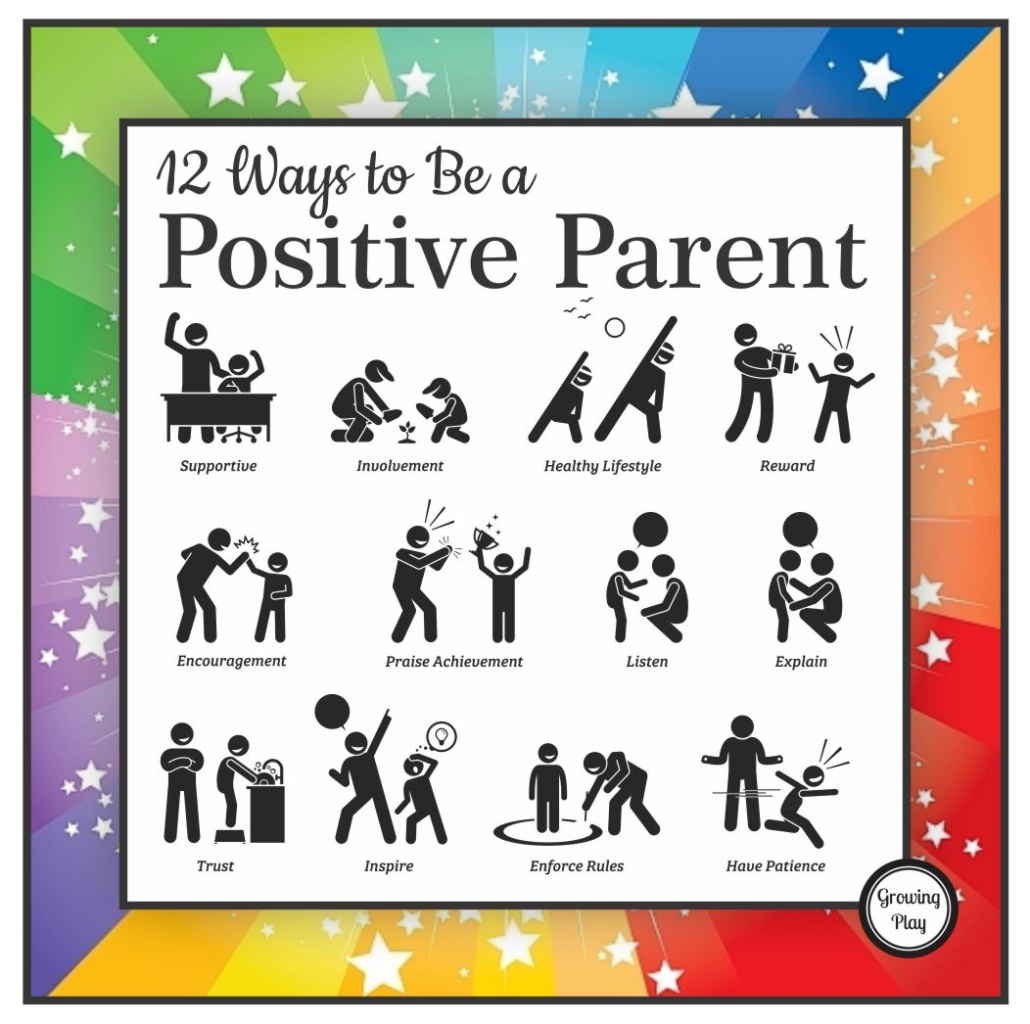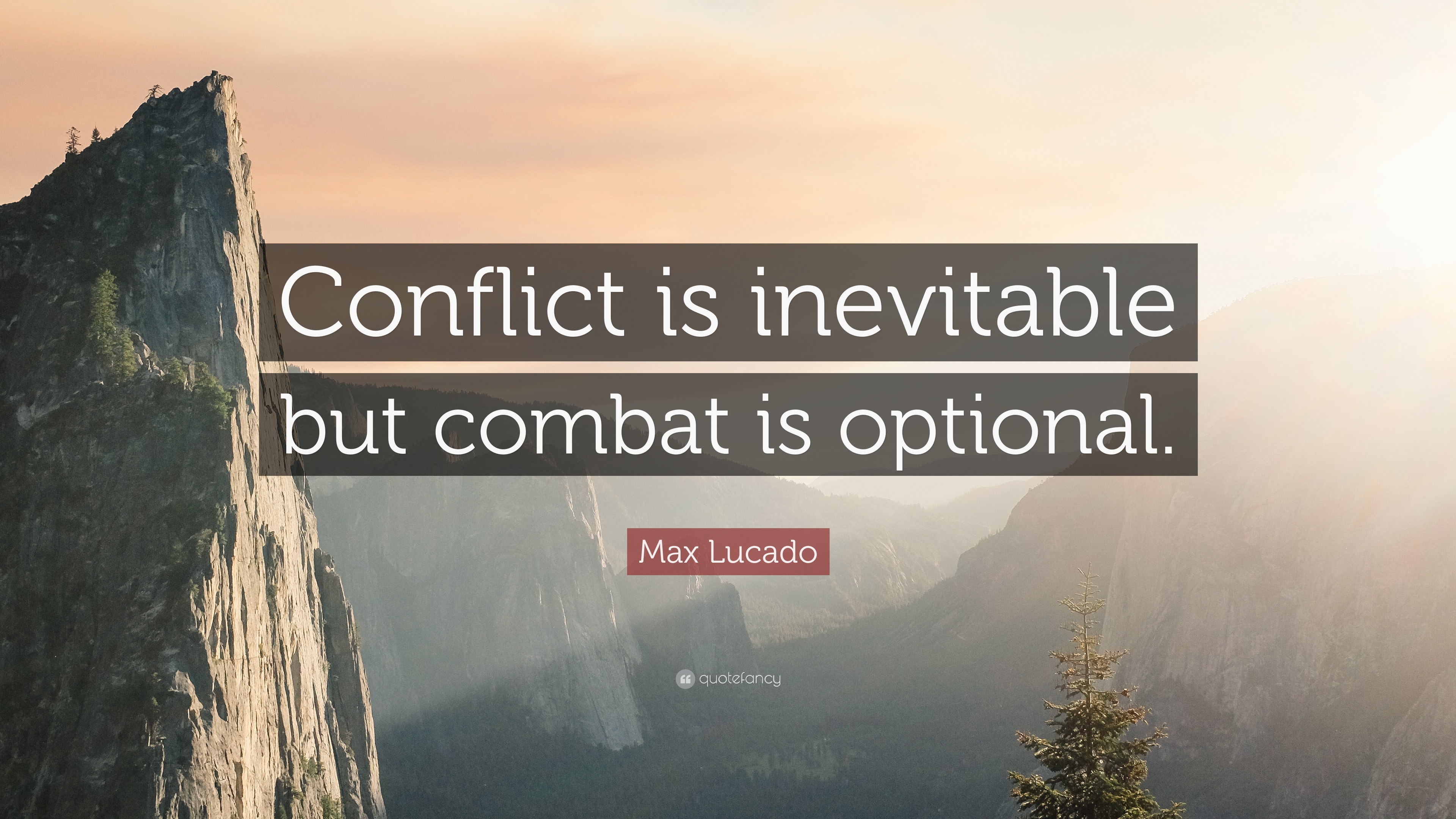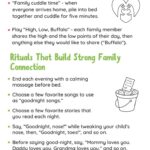The Enmeshed Family: 14 Signs Of Enmeshment And Overcoming Relationship Dynamics
Individuals with close family bonds tend to be happier and healthier mentally and physically. This is also true for those who grew up in a healthy and happy family of origin , whether it is your adoptive or biological family. Though deep relationships in healthy families are important, some families fail to implement healthy boundaries which can create a dysfunctional family dynamic. While there are different categories of toxic family dynamics in relation to boundaries, the particular one that we're discussing is known as enmeshment.
Enmeshment occurs when the dynamics of relationships in a family don't allow individuals to maintain their own individual, emotional space. Enmeshed situations are often seen in a dysfunctional family .
If you believe your family is enmeshed, you are certainly not alone. Changing enmeshed family dynamics can be difficult and frustrating, but there is hope for you if you wish to have healthier relationships. In this article, we'll define enmeshment and identify the key characteristics, causes, and effects of this particular enmeshed family dynamic. We'll also discuss the importance of healthy family relationships, how to overcome difficult relationship dynamics, and valuable resources, such as online therapy , for individuals, couples, and families in need of help.

Understanding enmeshment
Many people don't realize they are part of an enmeshed family until they're well into adulthood, and some individuals never recognize the signs. Enmeshment involves blurred or nonexistent boundaries , unhealthy family patterns, control, social problems, a dysfunctional relationship pattern, as well as lack of independence and individuality over one’s own feelings. We'll cover these difficult dynamics in more detail later.
Enmeshment describes family relationships as unsustainable, as it takes away from a person's individuality in their family. Children of enmeshed families often have a harder time being responsible for their own choices and may have difficulty in their personal development due to a lack of emotional and physical boundaries. These dynamics of dysfunctional family cohesion can follow a child of enmeshment into adulthood and affect their romantic and platonic relationships in the long run regarding physical and emotional space.
Hope for the enmeshed family
If you are part of an enmeshed family, there is hope. Healthy separation and space can be beneficial for other relationships and one’s own identity. You can also get support on an emotional level, restore unstable family patterns, establish setting boundaries that are healthy, and find a strong sense of relational balance that involves trust, personal and relational boundaries. Though this process can take time and patience, it's a rewarding journey that can help you and your loved ones feel closer. With the help of an individual or family therapist, you can figure out what patterns are manifesting in your relationships, and how to cope with them in an effective way.
Because enmeshment often spills over into romantic relationships and even friendships, recognizing telltale signs and seeking help is key to breaking the cycle of dysfunctional relationships forever. People with a history of enmeshed relationships can be more prone to struggling with emotional and physical abuse. They have trouble setting boundaries as an adult because their unhealthy enmeshed families set a precedence of boundaries as permeable.
It's important to note that enmeshment is almost always unintentional. Children who grow up in enmeshed families often carry similar patterns to their own families while remaining unaware of the dysfunctional cycles and unhealthy relationships they're passing on. It takes an individual becoming aware of their shortcomings and unhealthy behaviors to facilitate change. Understanding enmeshment and enmeshed relationships can help you break the pattern. Codependent relationships can often form early in a child’s life, and though it can be difficult to follow one’s own interests and build self-esteem, there is a strong sense of hope for people trying to do so.
If you or a loved one are experiencing domestic abuse, reach out for help immediately. The National Domestic Abuse Hotline can be reached at 1-800-787-3224, and is available 24/7.
Signs of enmeshment
Deeply ingrained, longstanding enmeshment patterns can be difficult to recognize within a family unit, as dysfunction becomes the norm. Enmeshment is most common between parents and their children, though it can also occur between couples. Since family units are inherently connected, these dynamics can alter the home environment, and create bonds that are codependent. An emotionally healthy adult has emotional needs for personal space because boundaries create safety. However, enmeshed family dynamics and enmeshed parents create unrealistic expectations regarding the meaning of emotional needs, strong family bonds, and future relationships.
It's important to be mindful of the boundaries and the type of emotional bond such that roles of the parent-child relationship avoid dysfunctional relationships. Though it can be difficult for parents to allow their children to have their own autonomy, children from enmeshed families can be more prone to mental health challenges later in life. Children in these situations may also struggle to take healthy risks, and deal with lower self-esteem. Without the ability to be independent and have an awareness of their own mental and emotional wants and needs, it can be difficult for children to develop a strong sense of self. Without these important life skills, children from enmeshed families may feel that they don't have an identity outside of their personal relationships. As children get older, it is important for them to communicate clear expectations, focus on their own needs, and to reflect respect for their own identities so as to not perpetuate feelings of being emotionally dependent. However, part of enmeshed family characteristics is for the parents’ expectations to dictate a separate sense of identity and being emotionally independent, which can lead to low self-esteem, mental illness, and other problems down the line.
Many enmeshed parents expect their children to adhere to their spoken or unspoken rules into adulthood. Enmeshment between a parent and a child can get complicated. These parents may find it unacceptable if their adult children disagree with their beliefs and values. Sometimes this refers to a set of religious or spiritual beliefs, and this can lead to a child to feel guilty with any questioning. They will sometimes rely on their children for emotional support, expect them to live nearby, and follow a specific career path. Codependent parents’ lives center around the child, and this lack of boundaries create physical discomfort. If you grew up with a codependent parent and enmeshed relationships, you may feel like you do not get a say in what you want in life outside your family. Due to codependent relationships, you may feel frustrated that you are not seen as not just an extension of tight-knit family without your own identity.
It can be challenging for individuals to attempt to set boundaries with enmeshed parents. Parents may feel betrayed, angry, or spiteful. It's important to note than many enmeshed parents do not realize that they are, in fact, enmeshed and encouraging further enmeshment. While this certainly doesn't excuse the behaviors, it may be helpful when trying to understand and potentially rectify the family dynamic.
However, because of this parental sense of betrayal, anger, or spite, many children in enmeshed family structures find it difficult to change the dynamics of the family, especially while they're still living at home. When someone seeks to break free and take care of their needs instead trying to take care of their parents, there can be intense guilt and shame.
You may be part of an enmeshed relationship or family if you experience any of the following:
An unhealthy emotional attachment to a loved one that seems out of your control
Lack of healthy family gathering and events
Inability to have or greatly difficulty in having engaged relationships with others outside of your immediate family
An unclear identity or sense of self outside of the family setting
Lack of alone time and space while at home, or while spending time with family
The desire to be rescued from difficult emotions, or the expectation that you'll rescue your loved one from their challenging emotions
Intense fear of conflict and abandonment
Inability to or great difficulty in setting boundaries that are healthy
The inability to feel "up" when your loved one is feeling "down," or feeling that your emotional state is always governed by those with whom you have a close personal relationship
In addition to the unhealthy dynamics above, an enmeshed relationship between a parent and child may be characterized by the following:
Inappropriate roles such as the parent becoming the child's best friend, and the child acting as the parent's primary (or only) source of emotional support. The child may also become the parent's confidant and be expected to keep family secrets.
Favoritism where a parent voices that one child is their favorite, or exhibits favoritism through their actions, including special privileges.
Over involvement in the child's relationships, activities, accomplishments, and problems.
The pressure to remain in the same location as the parent even as an adult. Enmeshed parents often make their adult children feel guilty for pursuing interests and activities outside of the family unit.
What causes enmeshment?
There's no doubt that enmeshment is a complex relationship dynamic, and the root cause(s) can be just as complicated. Examples include:
Growing up in an enmeshed family environment which can make it difficult to form and maintain healthy relationships free from enmeshment. Unhealthy patterns tend to be passed down through multiple generations when enmeshed relationships exist.
The desire to break free from a parent's rigid rules and boundaries, and making a conscious effort to steer clear of rigidity in the hope of breaking the family cycle, which can sometimes result in enmeshment.
A parent's reaction to a child's illness or trauma when the parent feels an intense desire to keep their child safe from further physical or emotional harm, even after the illness or traumatic event has passed.
The effects of enmeshment
The long-term effects of enmeshment can impact an individual's life into adolescence and adulthood. Common effects include:
Personality disorders and other mental health disorders
Self-esteem problems often due to a lack of identity and sense of self
Difficulty setting boundaries as healthy boundaries, were not modeled during childhood
Difficulty maintaining healthy personal relationships due to family instability during childhood
Eating disorders which may be prompted by the need for control in a person's life.
Attempts to relieve emotional pain and regain control by turning to alcohol, drugs, and other addictive behaviors
The importance of close family bonds
Feeling connected to others has a positive effect on our physical and mental health, along with our level of happiness and overall well-being. It's important to note that though enmeshed families are unhealthy long-term, the desire to have close family bonds is understandable.
It may take time, patience, and effort to work on enmeshed relationships, but it can be incredibly rewarding. When enmeshed families become aware of their unhealthy patterns, they can begin to connect through open communication, healthy mutual emotional support, a sense of belonging, and validation. By implementing these positive changes, parents raise their children with the ability to form and maintain positive relationships as adults.
Overcoming difficult relationship dynamics
As mentioned previously, awareness is the first step to healing an enmeshed relationship. The following tried-and-true tips will help you start untangling your enmeshed bond with your family:
Practice mindfulness to establish a connection to yourself and your environment
Carve out a few minutes each day to get in touch with your individual thoughts and feelings. Pay close attention to your breath and tap into any body sensations you may be experiencing. By allowing yourself to be present, you'll learn that thoughts and feelings pass organically. You can also try practicing mindfulness by writing about your feelings in a journal or finding a creative outlet that feels good for you.
Acknowledge your feelings
Rather than pushing uncomfortable feelings away, acknowledge them, and allow yourself to sit with them before allowing them to drift away naturally. Some people who come from enmeshed family environments will put up emotional "walls" as a coping mechanism. It's important for you to continue to allow yourself to be emotionally vulnerable. When we repress our feelings, they can fester and become more dangerous to our mental and emotional wellbeing long-term.
Take responsibility for your feelings (and nobody else's)
Many of us often experience a plethora of emotions daily and taking on others' emotions can be downright exhausting as we're already experiencing our own. Make a conscious effort to take responsibility for your feelings, don't expect loved ones to carry the burden of your emotions, and avoid trying to make others more comfortable by attempting to change their emotional state. We are each only in control of ourselves and our own emotions; no one else's. You can be available to offer empathy for the people you care about without allowing their feelings to affect yours. If you find your emotions mirroring those around you, you may have to learn when to take space from a stressful situation.
Begin setting personal boundaries
Only initiate a conversation about boundaries when you and your loved one are calm. Be direct and assertive without being harsh or judgmental. Pay close attention to your feelings and be sure to maintain the boundaries you set. Setting healthy boundaries is a sign of self-respect. As shame researcher Brené Brown says, "Daring to set boundaries is about having the courage to love ourselves, even when we risk disappointing others."
Form meaningful friendships
Healthy friendships are important; they open us up to new dynamics and help us understand and appreciate different points of view.
Explore your interests
Look for a club, group, or class in your area. Meetup.com is an excellent place to connect with others in your community.
Remember: This is your healing journey
Everyone must acknowledge and accept unhealthy family dynamics in their own time. You can begin to untangle yourself from enmeshment even if your loved ones aren't on board.
In the next section, you'll find links to several resources that offer insight and tips for breaking free from enmeshment and other unhealthy relationships.
Helpful resources for overcoming difficult relationship dynamics
Adult Children of Emotionally Immature Parents by clinical psychologist Lindsay C. Gibson introduces the four types of difficult parents and offers tips on healing from a painful childhood.
Boundaries by Dr. Henry Cloud and Dr. John Townsend is a must-read resource for anyone who struggles to set boundaries in any relationship. You'll find it particularly helpful if you have difficulty saying no to others.
Emotional Blackmail by Dr. Susan Forward will help you overcome the guilt, shame, fear, and sense of obligation you feel due to manipulation.
An Adult Child's Guide to What's Normal by Drs. John and Linda Friel is an insightful resource for individuals who are intent on leading a healthier, happier life free from the pain of past emotional trauma.
Start your healing journey with online therapy
While the above-mentioned resources can be incredibly enlightening and helpful, healing from enmeshment and other difficult or damaging relationships often requires support from a trained professional.
Regain's online therapists can help you begin or continue your healing journey. From acknowledging problematic patterns and unhealthy relationship dynamics, to establishing healthy boundaries and implementing effective communication techniques, your online therapist can teach you the skills necessary to break free from the chains of enmeshment. The process of trying to change enmeshed relationships is difficult, but there is hope that you can move forward with healthier relationships.
Counselor reviews
Healing from enmeshment can be challenging, but extremely beneficial. By utilizing the information and resources in this article, along with online therapy, you can begin to separate your true feelings, emotions, and thoughts from your enmeshed relationships, opening up a whole new world of possibilities.
"Close your eyes and imagine the best version of you possible. That's who you are; let go of any part of you that doesn't believe it." - C. Assaad
“My wife and I decided to give online couples counseling a go after finding traditional methods weren’t all that suited to our busy working and parenting lifestyle. Our counselor Donna Kemp has been amazing! We both feel she’s listened to us and given us the confidence to step out of our comfort zone to deal with problems that are easy to avoid. She is encouraging without being pushy. We’ve both responded very well to her and her methods and look forward to continuing on with Donna. Highly recommend!”

“Austa has been wonderful thus far. She has helped my partner and I during an unimaginably difficult time... She has also guided us in communicating effectively and setting appropriate boundaries in our relationship. I was hesitant to pursue counseling at the beginning, but I truly believe that it is making a difference for our relationship. Austa is easy to talk to and she is a great listener. I would wholeheartedly recommend her as a counselor.”

Commonly asked questions below:
what is an enmeshed parent? Why enmeshed families are too close? What are examples of enmeshment? What does family enmeshment look like? How does a family become enmeshed? How do you escape an enmeshed family? Is enmeshment a trauma? What is the difference between codependency and enmeshment?
What is toxic enmeshment? Is parental enmeshment abusive? What consequences can enmeshment lead to? How do you know if you have an enmeshed family? How do you get out of an enmeshed family? How does enmeshment develop? Can you heal from enmeshment?
- “Why Do I Get Depressed At Night?” Understanding How Sleep And Mood Are Related
- What Is Bibliotherapy And Can It Help Me? Medically reviewed by Melissa Guarnaccia , LCSW

5 Strategies to Cope With Toxic Family Members
How to deal with blood relations that make you bleed..
Posted April 28, 2022 | Reviewed by Jessica Schrader
- Family Dynamics
- Find a Family Therapy Therapist
- Dealing with toxic family is more complicated because relationship makes it harder to break off contact.
- Some basic characteristics of toxic behavior are manipulation, blaming, lying, being judgmental, and rarely taking responsibility.
- Key strategies are setting boundaries, limiting contact, and not engaging in toxic interactions.
I’ve written a few posts about toxic people but I think toxic family members deserve a piece of their own. Probably all of us will experience one or two toxic people during our lifetime—co-workers and bosses, lovers and former spouses, people we thought were friends, acquaintances of friends, uncooperative neighbors, and many others.
Family members represent a group unlike any other because we are related to them. And that means it may be much harder to deal with them simply because we think we can’t get rid of them. It’s much more complicated when people are blood relations, and when, because you are family, you will probably need to be around them on many occasions.
Up close and personal, toxic family members may be your parents, your siblings, aunts, uncles, grandparents, and anyone distantly related to any of them. It’s hard to cut people off when others close to you are still involved with them. It’s hard to cut people off when other family members have definite opinions and try to weigh in. Being related complicates matters but the fact is, when all else fails, we can and often need to exclude certain family members from our lives.
But before anything, just to review, what makes a person toxic? Here are just a few of the basic characteristics.
- They are manipulating. They will do whatever they need to control you and any situation that they feel is in their best interest.
- They blame others for everything, especially things about themselves they don’t want to acknowledge. They rarely ever say they’re sorry for their actions.
- They take no responsibility for their own actions. In their mind, they can do no wrong.
- They have no concern for anyone else’s thoughts, feelings, and needs.
- They are often critical, judgmental, and cruel. There is simply no emotional filter and see no reason to control how they express themselves—yelling, name-calling, and worse.
- They make you feel guilty for things you didn’t do.
- They lie and cheat to get their way.
Here are five ways to cope with toxic family members.
1. Create boundaries . OK, easier said than done, but very essential to do. Certainly, it’s easy to get caught in the web of toxic behavior if you’re new at the game, meaning you’ve just begun to experience what it’s like to be in the company of a toxic person. If you’re experienced, it means you’ve already probably gone a few rounds with family members and are getting the hang of it. (In reality, you never really get the hang of it, or want to.)
How to set boundaries may take some time to figure out, especially if there are few or no boundaries within your family, or with specific family members. The point is toxic people don’t want you to have boundaries because it’s harder to control someone who is not easily accessible to them. A toxic person lives for invading other people's boundaries. That way they can say and do anything they feel like anytime they want to. Creating boundaries limits a lot of their behavior.
2. Limit your contact. This may be hard to do, especially because family members often get together on various occasions. And although you may not be able to totally avoid that contact you can find ways to make sure you surround yourself with people you do get along with as a way to insulate yourself from toxic family. And for heaven’s sake, don’t allow yourself to be cornered alone in a room.
Don’t confide in a family member that has turned out to be someone you can’t trust. Don’t share personal information that can be used against you. If you have to communicate at all, keep it straightforward and simple. The second you sense argument or confrontation, don’t engage. Rather, leave the space as fast as you can.
3. Don’t engage. Aside from limiting your contact, it’s important to not play into any interaction, especially when it is provocative and argumentative. It’s hard at times to hold your tongue when someone is saying and doing outrageous things but it’s important to learn to do it for your own sake and sanity. Anything you might say may be held against you and nothing you say will change anyone’s mind anyway.

Remember, the goal of a toxic person is to control you and break you down so that you can be easily manipulated.
4. Create a solid support system. Given all the negative behavior, you can definitely use the support and strength of good-hearted people who want to know you for the person you are. Surrounding yourself with people that really care about you and don’t want to see you hurt goes a long way to diluting all of the negativity you may have surrounding you in the family. These friends and supporters will act as a buffer between you and those that want to pull you in and control you. They will also function as a reasonable sounding board in case there is any doubt about what you are experiencing.
5. Cut off all contact. When all else fails, when you’ve gone as far as you can go, when no different outcome (or a worse outcome) is expected, it’s time to cut all ties to a toxic family member. Obviously, you try whatever option you can to change behaviors. And maybe you try over and over to communicate differently in an attempt to make the relationship work, at least in part.
When you’ve done everything you can and things stay the same, you’ll know you tried whatever is possible. No guilt , no remorse, no shame . The final and only solution is to preserve your own integrity and health, and let your relationship with your toxic family member go. I call it “letting them play solitaire.” The toxic game requires at least two to play but when one person bows out, there’s only one left to play the game—and that’s no fun for them.

Abigail Brenner, M.D . , is a psychiatrist in private practice. She is the author of Transitions: How Women Embrace Change and Celebrate Life and other books.
- Find a Therapist
- Find a Treatment Center
- Find a Psychiatrist
- Find a Support Group
- Find Teletherapy
- United States
- Brooklyn, NY
- Chicago, IL
- Houston, TX
- Los Angeles, CA
- New York, NY
- Portland, OR
- San Diego, CA
- San Francisco, CA
- Seattle, WA
- Washington, DC
- Asperger's
- Bipolar Disorder
- Chronic Pain
- Eating Disorders
- Passive Aggression
- Personality
- Goal Setting
- Positive Psychology
- Stopping Smoking
- Low Sexual Desire
- Relationships
- Child Development
- Therapy Center NEW
- Diagnosis Dictionary
- Types of Therapy

Understanding what emotional intelligence looks like and the steps needed to improve it could light a path to a more emotionally adept world.
- Coronavirus Disease 2019
- Affective Forecasting
- Neuroscience
Setting Healthy Boundaries in Relationships
Conflict resolution skills, attachment styles and how they affect adult relationships.
- I Feel Lonely: 8 Easy Ways to Deal with Loneliness
Loneliness and Social Isolation
- Codependency: Signs, Causes, and Help
Tips for Building a Healthy Relationship
Tips to improve your sex life.
- Online Therapy: Is it Right for You?
- Mental Health
- Health & Wellness
- Children & Family
- Relationships
Are you or someone you know in crisis?
- Bipolar Disorder
- Eating Disorders
- Grief & Loss
- Personality Disorders
- PTSD & Trauma
- Schizophrenia
- Therapy & Medication
- Exercise & Fitness
- Healthy Eating
- Well-being & Happiness
- Weight Loss
- Work & Career
- Illness & Disability
- Heart Health
- Childhood Issues
- Learning Disabilities
- Family Caregiving
- Teen Issues
- Communication
- Emotional Intelligence
- Love & Friendship
- Domestic Abuse
- Healthy Aging
- Aging Issues
- Alzheimer’s Disease & Dementia
- Senior Housing
- End of Life
- Meet Our Team
What are dysfunctional family relationships?
Common causes of family conflict, tips on interacting with difficult family members, when to cut ties with family members, dealing with difficult family relationships.
Struggling to coexist with difficult family members? Learn about common sources of conflict and how to deal with dysfunctional family relationships.

Mothers, fathers, siblings—your closest family members can form a lifelong social support system. They can celebrate your highs and give you comfort when you’re at your lows. Even so, disagreements and misunderstandings are bound to happen. Minor conflicts between family members are normal, and they typically resolve on their own or with some constructive dialogue. But other conflicts can be much more significant. In cases where resentment and toxic patterns arise, family interactions can become lasting sources of frustration and tear relationships apart.
Difficult family relationships can take on many forms. You might have an overly critical dad who makes you feel anxious. Perhaps a sibling’s jealousy is a constant source of tension at family functions. Or maybe you believe a new in-law’s controlling behavior leads to unnecessary drama.
These turbulent family relationships can have long-lasting effects on your health and well-being. You might:
- Begin to blame yourself for these poor relationships.
- Experience fear and anxiety surrounding family or holiday events.
- Hesitate to reach out to other family members.
- Suffer from lack of emotional or financial support during hard times.
- Develop trouble sleeping or focusing due to the stress of these interactions.
Research even indicates that poor relationships with parents, siblings, or spouses can contribute to midlife depression symptoms . Exposure to domestic conflicts can also have a long-term impact on a child’s well-being as well. One longitudinal study found that domestic arguments and violence can increase a child’s risk of developing mental and physical health problems later in life.
To minimize these consequences, you can learn how to identify causes of family tension and take steps to create peaceful interactions. While you might eventually find that cutting ties is the best option for your health and happiness, there are approaches you can take that can help repair family bonds and improve your relationships with those closest to you.
Speak to a Licensed Therapist
BetterHelp is an online therapy service that matches you to licensed, accredited therapists who can help with depression, anxiety, relationships, and more. Take the assessment and get matched with a therapist in as little as 48 hours.
Before you learn how to deal with difficult family members, it helps to examine why those relationships are rocky to begin with. Consider these common causes of family disputes and ways to navigate them:
Family finances
Family members tend to have some degree of financial overlap. Siblings might bicker over an inheritance. Parents may have strong opinions on how their children handle money. Or adult children might feel the need to control their aging parents’ finances.
When it comes to large family events, such as weddings or holiday parties, financial disagreements can often come to a head. However, there are ways to navigate money-related problems within your family.
Put things in writing. If you expect a family member to pay you back for a personal loan, for example, make a written agreement between the two of you. This can help you avoid arguments or even legal disputes.
Set boundaries. If a family member is pressuring you to loan or give them money or wants to dictate your finances, it’s important to clarify the type of behavior you won’t tolerate. Be clear so your family member will know when they’ve crossed the line.
Know when to be transparent. You don’t have to share all of your financial details with anyone. But, in cases where your decisions may affect your family members, it’s best to be transparent. You might want to talk to your children about details of their inheritance to avoid a future conflict, for example, or let your siblings know why you can’t contribute to a shared expense.
[Read: Coping with Financial Stress]
Caregiving responsibilities
Research from 2020 shows that about 19 percent of Americans are acting as unpaid family caregivers. The stresses and responsibilities of being a caregiver can weigh heavily on family relationships.
Studies indicate that tension between siblings tends to increase when a parent begins to need some level of caregiving. Perhaps you believe your sibling is in denial over your parent’s health and needs to be more proactive. Or maybe you and your sibling disagree on whether an assisted living facility is the right housing choice for your parent.
Conflicts over caregiving aren’t limited to sibling relationships. You might have arguments with your parents or spouse over how to raise your children.
When you and another family member are at odds over caregiving, try these tips:
Be open about what level of support you need as a caregiver. If you keep your feelings to yourself, resentment can grow and increase tensions.
Look for compromise and accept other people’s limitations. If your sibling can’t physically assist with caregiving, perhaps they can offer financial help. Remember to show your appreciation when your sibling takes on responsibilities.
If someone else is completely unable or unwilling to help with parental caregiving, try looking for support outside of your family .
[Read: Family Caregiving]
New family members
As your family expands, so does the potential for new conflicts. In one study of estrangement between mothers and adult children, more than 70 percent of the mothers said other family members caused the rift. The mothers often pointed to the child’s partner or spouse as the problem.
These conflicts aren’t limited to mothers and children, of course. You and your brother-in-law might have a contentious relationship. Or perhaps your father-in-law always seems to expect too much from you. To better get along with your in-laws:
Expect differences. Different families have different expectations, boundaries, and ways of doing things. Do you see your daughter-in-law as an untactful or even rude family member? Maybe she comes from a family background that encourages blunt language or tolerates teasing.
Focus on their most positive traits. Your in-laws are part of your family because someone else in your family saw the good in them. If you’re having a hard time seeing past their flaws, try making a list of their strengths.
Find common interests. Although it’s not always easy, you can usually find shared interests if you look hard enough. Ask about your in-laws’ hobbies, passions, and past experiences until you find something that’s relatable.
Political and religious differences
Religious and political similarities can affect the strength of family bonds. For example, studies indicate that when mothers share the same religion as adult children, they tend to experience higher-quality relationships.
On the other hand, when family members don’t have the same views on religion or politics, it can trigger heated arguments. Maybe your sibling objects to group prayers before meals. Or perhaps you hear insults and snide remarks when you express your political views. Here’s how to deal with difficult family members who have opposing views:
Identify useful conversations. When a debate starts, ask yourself what you hope to get from the interaction. Do you expect to completely change your family member’s mind? Or are you trying to gain insight into their beliefs? Is it at all possible that either of you will budge on your position? Even if you’ll never agree about something, you can still move the conversation forward if you’re both willing to be open and respectful of each other’s views.
Avoid sweeping generalizations. Statements like, “Everyone on the left is evil” or “Everyone on the right is an idiot” can quickly escalate arguments and further entrench people.
Try to see the human element in the other person’s values. Many political beliefs are shaped by an underlying concern for society, such as economic or environmental stability. By recognizing that, the other person’s views may not seem as wildly different from your own.
Know when to exit heated arguments. When emotions run too hot, make a respectful but firm exit from the conversation. You can say something like, “I’m not sure if this is productive. Let’s leave it there.” Contain the urge to have the “last word.”
Be mindful of your jokes. Humor can often help diffuse a tense argument . However, avoid aggressive jokes that target the other person’s beliefs or values.
Unresolved family issues
Things that happened in the past can have a lasting effect on family relationships. Did you and your son have an explosive argument when he was a teenager? If the matter went unresolved, he might continue to be resentful or distrustful of you. Did your parents seem to favor you over your brothers? Jealousy could become an underlying source of tension for your siblings.
Unresolved issues can often crop up during milestone events or times of change within the family. For example, insecurities over parental favoritism might reappear as you and your siblings begin to act as caregivers to an aging parent.
If you’re the one holding onto an issue, speak up. Invite the other person to a private conversation, where you can bring up the issue and share your perspective. Be willing to forgive if the party apologizes for their part in the problem.
If a family member is holding resentment, be empathetic. Try to understand how they perceived events and how the past continues to affect them. If you caused some harm to them in the past, apologize and ask how you can repair the damage to the relationship. For example, if you lost your temper with your son in the past, explain how you plan to do better going forward.
If neither person is at fault, it can still help to acknowledge the past and the effects of growing up in a dysfunctional family. Remember that no family is perfect, and past events influence present-day perceptions. Focus on what steps you can take in the present to resolve the conflict .
Despite your best efforts and intentions, sometimes you’ll find that you simply can’t get along with a family member. Perhaps someone continues to hold a grudge against you or refuses to change their behavior.
Your general plan might be to avoid difficult family members. However, that strategy can often be foiled by weddings, funerals, and other family gatherings. Here are some alternate options:
Manage your own stress
Prioritize de-stressing before and after you have to interact with a difficult family member. Effective stress management techniques can range from meditation to going for a walk to journaling your thoughts or chatting face-to-face with a close friend.
If you start to feel stressed by the difficult family member during the event itself, don’t hesitate to excuse yourself from the room and use some quick stress relief techniques to clear your head.
- Rely on your senses to ground yourself in the moment. Take in a deep breath of fresh air, find a friendly cat or dog to pet, or hum a tune to yourself. You can also use your imagination to picture something soothing, like your child’s face or a relaxing setting.
- If you tend to freeze when under stress, activities that involve physical movement are often most effective. Consider doing some stretches, swaying to background music, or jogging in place to burn off tension.
Set and maintain boundaries
Strong, clear boundaries can protect you from toxic family interactions. Imagine you and your spouse are about to visit overbearing in-laws. Talk to your spouse and set a limit on how long the visit will last. You can also set boundaries on conversation topics. If you and your in-laws have had heated arguments over religion, it might be best to steer clear of the topic.
If someone attempts to cross your boundaries, keep your temper in check. Instead, be clear and direct about the consequence. For example, you could say something like: “If you keep bringing up that topic, I’ll be leaving early.”
Build your emotional intelligence (EQ)
By strengthening your emotional intelligence, you can improve your ability to understand, manage, and express emotions. This can have a positive effect not just on your family relationships but on your overall mental health.
To enhance your EQ, you need to focus on four key skills:
- Self-management
- Self-awareness
- Social awareness
- Relationship management
You can develop these skills by taking steps such as using mindfulness to assess your emotional state and nonverbal cues. Read Improving Family Relationships with Emotional Intelligence for more strategies.
Change your focus
Be willing to acknowledge your family member’s strengths as well as their flaws. Perhaps your sibling is confrontational and demanding, but at least they’re always willing to help finance family events. Or maybe your mother-in-law is overly critical of you but always supportive of your children.
Practice empathy
Acknowledge that a difficult family member might be going through rough circumstances of their own. From personal insecurities to substance addiction or mental illness, certain underlying factors could be fueling your family member’s behavior.
Although these factors don’t excuse the behavior, by being more empathetic you might gain a better understanding of the person and why they act the way they do.
Use conflict resolution skills
Conflict resolution skills can come in handy anytime you’re dealing with family drama. These skills involve managing stress in the moment , being aware of both your own emotions and the other person’s, and prioritizing resolution over winning the argument.
You might notice that an aging parent is lashing out due to a feeling of declining independence. A deescalating step might be to ask them to do you a favor or give them a task that allows them to feel needed.
[Read: Conflict Resolution Skills]
Limit expectations and practice acceptance
Make peace with the fact that some people have viewpoints or priorities that may never match your own. Your adult children, siblings, or parents will do what they feel is right for them, and you can’t control their behavior. Try to treasure the relationship for what it is, or focus on other relationships that bring you joy.
At what point is a dysfunctional family relationship no longer worth saving? That may depend on different factors.
What’s the potential for change? The other person must be willing to acknowledge the problem and work to change. Some people don’t want to change, and you can’t control their behavior. If you’re dealing with a narcissistic family member , their inflated self-image, lack of empathy, and manipulative ways can hinder any meaningful progress.
How severe is the conflict? In cases of abuse , it’s usually advisable to cut ties with the family member. Remember that abuse doesn’t necessarily have to be physical. People who subject you to verbal, emotional, or psychological abuse can also harm your sense of well-being. This could include a father-in-law who aims to humiliate you or siblings who use guilt-tripping to manipulate you.
Dealing with doubts
Cutting ties means ending contact with the difficult family member, which is not always easy. You might repeatedly question your decision or have a hard time accepting that the relationship is unsalvageable.
Keep a list of specific reasons why you’ve decided to end contact. Did the person cross your boundaries too many times? Did the stress of your interactions negatively affect other areas of your life? Write it all down, so you don’t forget.
How to deal with the grief of ending a relationship
Depending on how close you were to the family member, you may need to take time to grieve the loss of the relationship.
Rather than suppress your feelings, identify and acknowledge them. It’s normal to experience anything from anger to sadness to guilt following the end of a relationship. You should also expect grief to intensify on days that remind you of the family member, such as birthdays or holidays.
Talk to friends and other family members about the situation. Now is a good time to reach out for support. Tell the supportive people in your life what you need from them. You might even strengthen bonds with other family members.
Maintain your hobbies and health. Continue to engage in activities you love, and look after your physical healthy by exercising regularly, getting enough sleep, and eating nutritious foods. Don’t use drugs or alcohol to cope with your negative feelings .
Moving forward
Over time, people’s behaviors and circumstances can change. So, know that cutting off ties doesn’t necessarily have to be permanent. If you see evidence that your family member is truly willing to make amends, there may be a chance of reconciliation.
Don’t rush reconciliation, though. You should both accept that the process may take time and requires concrete steps for improving the relationship. With a combination of patience and improved communication , you might be able to repair that broken bond and move forward with a healthier relationship.
More Information
- Help with Relationships - Articles addressing common relationship problems, such as arguments, conflict, and communication. (Relate UK)
- Buist, K. L., van Tergouw, M. S., Koot, H. M., & Branje, S. (2019). Longitudinal Linkages between Older and Younger Sibling Depressive Symptoms and Perceived Sibling Relationship Quality. Journal of Youth and Adolescence , 48(6), 1190–1202. Link
- Con, G., Suitor, J. J., Rurka, M., & Gilligan, M. (2019). Adult Children’s Perceptions of Maternal Favoritism During Caregiving: Comparisons Between Turkey and the United States. Research on Aging , 41(2), 139–163. Link
- Full-report-caregiving-in-the-united-states-01-21.pdf. (n.d.). Retrieved January 12, 2022, from Link
- Gilligan, M., Suitor, J., Nam, S., Routh, B., Rurka, M., & Con, G. (2017). Family Networks and Psychological Well-Being in Midlife. Social Sciences , 6(3), 94. Link
- Paradis, A. D., Reinherz, H. Z., Giaconia, R. M., Beardslee, W. R., Ward, K., & Fitzmaurice, G. M. (2009). Long-Term Impact of Family Arguments and Physical Violence on Adult Functioning at Age 30 Years: Findings From the Simmons Longitudinal Study. Journal of the American Academy of Child & Adolescent Psychiatry , 48(3), 290–298. Link
- Schoppe-Sullivan, S. J., Coleman, J., Wang, J., & Yan, J. J. (2021). Mothers’ attributions for estrangement from their adult children. Couple and Family Psychology: Research and Practice . Link
- Sechrist, J., Suitor, J. J., Vargas, N., & Pillemer, K. (2011). The Role of Perceived Religious Similarity in the Quality of Mother-child Relations in Later Life: Differences Within Families and Between Races. Research on Aging , 33(1), 3–27. Link
- Suitor, J. J., Gilligan, M., Johnson, K., & Pillemer, K. (2014). Caregiving, Perceptions of Maternal Favoritism, and Tension Among Siblings. The Gerontologist , 54(4), 580–588. Link
- Waldinger, R. J., Vaillant, G. E., & Orav, E. J. (2007). Childhood Sibling Relationships as a Predictor of Major Depression in Adulthood: A 30-Year Prospective Study. American Journal of Psychiatry , 164(6), 949–954. Link
More in Love & Friendship
Strengthen your connections and improve your self-esteem

Tips for handling conflicts, arguments, and disagreements

Learn how bonds you had as an infant influence your relationships now

I Feel Lonely
8 easy ways to deal with loneliness and isolation

How to connect with others when you feel lonely

Codependency
Signs, causes, and help if you’re in a codependent relationship

How to build and keep a healthy and satisfying romantic relationship

How to enjoy more fulfilling sex

Professional therapy, done online
BetterHelp makes starting therapy easy. Take the assessment and get matched with a professional, licensed therapist.
Help us help others
Millions of readers rely on HelpGuide.org for free, evidence-based resources to understand and navigate mental health challenges. Please donate today to help us save, support, and change lives.
- Disorders & Issues
- Family And Relationship Issues
Family & Relationship Issues Articles, Research & Resources
Ad Disclosure: Some of our MentalHelp.net recommendations, including BetterHelp, are also affiliates, and as such we may receive compensation from them if you choose to purchase products or services through the links provided
About Family & Relationship Issues
Relationship and family issues, such as arguments, family secrets, sibling rivalries, parenting challenges, and communication struggles, will affect everyone at some point. However, chronic conflict can be stressful and harmful to health, and all household members can benefit from learning to navigate challenges effectively. (1)
Examples of family and relationship issues
Examples of family and relationship issues include:
- Frequent arguments and raised voices
- Anger , bitterness, and resentment
- Silent treatment and avoidance
- Miscommunication
- Inappropriate parenting styles
Causes of relationship and family issues:
- Inconsistent values, expectations, and beliefs
- Financial issues
- Lack of communication
- Poor boundaries and codependency (when the participants of a relationship don't assert themselves and give or expect too much) (4)
- Lack of emotional support, respect, and trust
- Life changes, such as moving to a new home or having a baby
- Self-esteem issues
- Mental health issues
Conflict resolution skills to master for thriving relationships include:
- Collaborative problem-solving
- Negotiation
- Asking for help
- Setting and maintaining boundaries
- Taking space and having separate hobbies
Keep in mind that abuse of any kind is unacceptable and has no place in a loving relationship. If someone is being threatened or physically, emotionally, or sexually abused , they should seek support immediately. There are anonymous, confidential ways to get help. (5) (6)
How To Cope With Family Issues
The best way to cope with family issues is for the responsible parties to seek therapy (in-person or online therapy ), learn to manage their own stress , and make an effort to change the environment. When adults can name and accept their own and their children's emotions, plus self-soothe and provide appropriate comfort to the kids, everyone benefits. (7)
Sleep, a nutrient-rich healthy diet , regular exercise , hobbies, and quality time together are useful protocols for robust relationships. Every individual should have a support network to confide in and consider practicing mindfulness to reduce the emotional intensity and increase self-reflection. (8)
The following is a closer look at some common family problems and how to address them:
- Communication issues: When people can't communicate well, it's difficult to maintain strong bonds. Dedicating time to each other, focusing on kindness and empowerment, listening carefully and offering reassurance, and establishing consistent routines are ways to overcome poor communication. (9)
- Financial troubles: Money issues can cause tension, resentment, and stress within a family unit. Learning money management skills is one aspect of coping with financial problems, but a shift in attitude can also help. (10)
Navigating family dynamics can be especially difficult for individuals who had unpleasant experiences in childhood. People who grew up in a home where negative treatment of one another was common might have to work harder to have strong bonds with others as adults. (11) Family counseling can help parents and guardians learn how to effectively communicate, set boundaries, and negotiate conflict.
How To Help Someone With Family Issues
When someone confides in another person, it's a sign of trust and respect. It can be difficult for anyone to be vulnerable and share their concerns, so the confidante should listen, take them seriously, and be sympathetic. Telling someone that they're overreacting or their problems aren't bad can be invalidating and won't help them. (12)
In many cases, it's more important to help them feel heard and seen by listening and demonstrating sympathy. Rather than trying to problem-solve for them, ask them to share their emotions about the situation. Talking about feelings can help reduce their intensity.
If the loved one directly asks for guidance, encourage them to seek professional help. Consider inquiring whether someone who hasn't asked for advice has sought guidance from a qualified source, as this might encourage them to help themselves.
How To Cope With Relationship Issues
Coping with relationship issues requires both partners to admit there are problems, accept responsibility, and work toward improving the situation. (12) Change doesn't happen overnight, and couples should try to focus more on making the necessary effort than achieving or measuring results.
Common relationship struggles include:
- Frequent arguments: Sometimes arguments are necessary to clear the air and express difficult emotions. However, behaviors such as yelling, not listening to each other, and hurling insults are never productive. Learn to listen to one another, avoid blame, and work toward a resolution, rather than 'winning' the argument. (13)
- Parenting disagreements: No two people share identical values and ideals, which can make parenting hard to navigate. When it comes to disagreements about raising kids, active listening, compromise, and negotiation are essential. Children should learn a mixture of their parent's values, not one or the other's.
- Infidelity: Lack of faithfulness is a well-documented, common cause of divorce and relationship breakdown. (14) Overcoming infidelity is possible, as long as both partners are willing to work at it. Most people in this situation can benefit from relationship counseling to help them identify underlying issues and move forward in the most constructive manner.
If there's a power imbalance, and one partner is always trying to control, insult, or humiliate the other—it could be domestic abuse. While it's difficult to reach out, there are confidential, safe ways to get help. (15)
How To Help Someone With Relationship Issues
Helping someone with relationship problems can be tricky. While the issues can be glaring to friends and family, the individual involved could be unaware or in denial. As such, offering unsolicited advice might feel like judgment and push them away. If the person is in a toxic or abusive relationship, it's critical that they have a strong support network in place.
- Oppositional Defiant Disorder
- Mens Health
- What Is Addiction?
- Signs, Symptoms, & Effects Of Addiction
- What Causes Addiction?
- Mental Health, Dual-Diagnosis, & Behavioral Addictions
- Addiction Treatment
- Addiction Recovery
- Information On Specific Drugs
- Homosexuality And Bisexuality
- Internet Addiction
- Childhood Mental Disorders
- ADHD: Attention Deficit Hyperactivity Disorder
- Anxiety Disorders
- Bipolar Disorder
- Depression: Major Depression & Unipolar Varieties
- Eating Disorders
- Childhood Mental Disorders And Illnesses
- Dissociative Disorders
- Impulse Control Disorders
- Internet Addiction And Media Issues
- Intellectual Disabilities
- Obsessive-Compulsive Spectrum Disorders
- Post-Traumatic Stress Disorder
- Schizophrenia
- Somatic Symptom And Related Disorders
- Tourettes And Other Tic Disorders
- Physical Mental Illness Flipbook
- Suicide Rates Vector Map
- Alzheimers Disease And Other Cognitive Disorders
- Chronic Obstructive Pulmonary Disease
- Colds And Flu
- Crohns Disease / Irritable Bowel
- Heart Disease
- High Blood Pressure
- Memory Problems
- Men's Health
- Sexually Transmitted Diseases
- Sleep Disorders
- Women's Health
- Anger Management
- Mindfulness
- Stress Reduction And Management
- Weight Loss
- Disabilities
- Domestic Violence And Rape
- Family & Relationship Issues
- Grief & Bereavement Issues
- Pain Management
- Relationship Problems
- Self Esteem
- Terrorism & War
- Health Insurance
- Health Policy & Advocacy
- Health Sciences
- Mental Health Professions
- Alternative Mental Health Medicine
- Medications
- Psychological Testing
- Psychotherapy
- Virtual Outpatient Eating Disorder Treatment
- Child Development And Parenting: Infants
- Child Development And Parenting: Early Childhood
- Sexuality & Sexual Problems
- Homosexuality & Bisexuality
- Aging & Geriatrics
- Death & Dying
- Physical Development: Motor Development
- Vygotsky's Social Developmental Emphasis
- Bullying & Peer Abuse
- Grief And Bereavement
How to Navigate and Resolve Family Conflicts — Strategies for Happy Family Life

As long as Linda can remember, she felt like she was in competition with her three older siblings. Growing up in Wilmette, she remembers that they were “better at everything — sports, academics, more friends… you name it,” she says. “I always felt like I didn’t measure up .”
But looking back, she doesn’t place blame entirely on her two sisters and a brother for her battered self-esteem. “My parents always pitted one kid against the other. They believed that was the way to elevate everyone’s performance…Instead, we just grew up resenting each other .”
Today, the 45-year-old accountant hasn’t spoken to two of her sisters since 2017. “It’s painful…but it’s just easier that way,” said Linda, who, to keep her family’s rift a secret, did not want to use her last name.
These days, such stories about major family conflicts are all too common. The rupture may be between siblings, or parents and their adult children, but the drama can have a profound impact on a much wider circle, such as grandchildren who are denied access to grandparents and cousins. No one seems to be immune — not even royalty, as anyone who has followed the Prince Harry-Meghan Markle saga knows.
While it’s difficult to pin down exact numbers, researchers estimate that such serious splits affect an increasing number of families. More than 25 percent of adults responding to a survey by the Cornell Family Reconciliation Project reported being estranged from a family member . The number may actually be higher, they say, because there’s so much shame and stigma surrounding the issue.

So how to explain all these broken relationships? According to Joshua Coleman , a San Francisco area psychologist and author of the new book, “ Rules of Estrangement ,” there can be many reasons why we cut off the very people we should be closest to. Certainly, long-simmering childhood grievances as in Linda’s case, can be contributing factors — but other causes include in-laws, addictions, money, undiagnosed mental illness and especially divorce.
In his survey of more than 1,600 estranged parents , about 70 percent of the respondents were divorced from the estranged child’s other biological parent, said Coleman, who specializes in parent/adult child estrangement and speaks from personal as well as professional experience. For two years, he had no contact with his daughter from his first marriage. (They have since reconciled.)
“Divorce can increase the risk of estrangement because it creates a realignment of loyalty by bringing in new people, such as step-parents and step-siblings,” he explained. “It can also tempt one parent to poison the relationship with the other parent.”

That shift of loyalties can also happen when an adult child marries and the new spouse is not eager to have a relationship with the new in-laws — perhaps because he or she had a more distant relationship with their own kin.
That was the case for one woman who often dropped off dinner for her son and daughter-in-law, who both were juggling full-time jobs and going to school. The mother-in-law soon found herself on the receiving end of a scathing email.
“What I saw as loving and supportive, my daughter-in-law saw as intrusive ,” said the mother, who has not seen her son in almost a year. Given that the wife is typically the keeper of the social calendar, she doesn’t expect to see him any time soon.
Of course, there may be more to the story than unsolicited casseroles, but why — at least anecdotally — do such splits seem to be more prevalent today ? There’s nothing new about divorce, sibling rivalry or parents meddling in their children’s lives and yet, in the past, you rarely heard about a family member severing ties with the rest of the clan.
Amy Dickinson has noticed an uptick during her 18 years as a nationally syndicated advice columnist, which she attributes to a multitude of factors, including the rise of social media and the fact that people are more candid about airing their problems.
“The same tools that make it easier to communicate with one another, can also bring on misunderstandings,” she said. “A foolish post, a snarky comment, an unkind or unflattering photo or video… can all lead to relationship problems.”
Another factor: A change in the way parents interact with their children today. A century ago, elders were to be respected, if not feared. However, in recent decades, parenting became less authoritarian and more democratic, giving children more of a voice in family decisions — and, when they’re adults, that includes wielding more power over the relationship.
Karl Pillemer , the researcher who led the Cornell study and is the author of “ Fault Lines: Fractured Families and How to Mend Them ” summed it up this way: “There’s a lower threshold breaking point — for younger people in particular.”

That’s the case for a 70-year-old mother of three daughters in Mill Valley. Her oldest daughter can “turn off her family with the flip of a switch,” said Nancy, who like other families in this story, are not using their last name for privacy.
One day, seemingly without provocation, her oldest daughter came over and delivered a litany of all the things Nancy did wrong raising her. “I was just stunned. I told her that she was my first — that parents are bound to make mistakes and that kids don’t come with a manual.”
The conflict hardened into a rift that lasted 13 years, and Nancy did not see her oldest granddaughter from age 2 to 15. One day, her daughter called, saying that she wanted to come over and, just like that, the break-up was over. The fragile peace held for eight years, until a few months ago, when the daughter became upset over some language in her mother’s will.
“My friends all tell me ‘You ought to call her.’ They have even offered to intervene on my behalf, but I know what I’m up against…I can’t ever win a discussion with her. And I just don’t have the strength to go through that again.”
Nancy ticked off a long list of privileges that her daughter received growing up — such as summer camp, private school tuition and, as a newlywed, living in the family’s second home, rent-free. It’s what University of Virginia sociologist Joseph E. Davis called the “reciprocal bond of kinship” in which years of parenting will be repaid with later closeness. When that doesn’t happen, parents see their offspring as ungrateful and their actions as the ultimate betrayal.
Of course, experts note that not everyone is deserving of such reciprocity and some cut-offs are necessary — for example, in cases of abuse — and other relatives should respect the decision.
But for the most part, people can refuse to be caught up in feuds, because it only leads to more drama , Dickinson said.
She cited an example from her own family — a relative who has drifted away completely. Now, after four decades of nearly zero contact, he is drifting back, in poor health and needing help.
“My work has inspired me to try to welcome him back, others refuse. I don’t blame anyone in my family who might want to keep their distance… but nobody has the right to control who I choose to have a relationship with. I am making my own choices based on what I’m capable of and what I want to do.”
Joshua Coleman offers the following strategies for taking care of yourself in a family conflict :
1. get support.
Reach out to friends and family and consider joining a support group or getting professional help.
2. Don’t cut off in response
You are not the one cutting ties, your family member is. Don’t cut off your family member in response. Continue to reach out, letting him or her know that you love them and that you want to mend whatever has broken.
3. Don’t feed the anger
It’s understandable to feel angry. Step back and try to understand what led to this estrangement. If the door opens, you will be in a much better position to reconcile.
4. Listen to without defending yourself
If there’s a chance to talk with your loved one, listen with an open heart. Even if you disagree, look for the grains of truth. Try to empathize with your family member’s pain rather than get caught up in the hurt and anger.
5. Focus on yourself
If you do begin communicating again, you will be in a position to learn from the mistakes of the past and work toward an improved relationship. Put your efforts into changing yourself, not your family member.
More from Better:
- The Cru Founder Tiffany Dufu Talks Equal Pay, Dropping the Ball and Lifting Up Women
- How My Disabled Son Has Given Me Hope During the Pandemic
- Family Philanthropy: Expert Financial Tips to Help You Align Your Money with Mission in 2021

Bonnie Miller Rubin grew up on the North Shore and was a reporter for the Chicago Tribune for 25 years, specializing in health and family issues. She is a regular contributor to The Washington Post and The Wall Street Journal.


All families deal with relationship difficulties, small or large, at various times throughout the family experience. Family problems come in all shapes and sizes, impacting family dynamics and shaping family relationships. The ways that family members cope with and solve issues provide a framework for family dynamics and set the tone for family life.
How to Solve Family Problems
- Create an Environment of Sharing
- Acknowledge the Problem
- Get to the Deeper Issue
- Focus on the Relationship – Let Go of Anger and Pride
- Get Professional Help
Remember to Take Care of Yourself
Creating a family culture of openness and security, and taking the steps to resolve family issues, can improve relationships and maintain positive family dynamics.
Common Family Problems
Families face a variety of problems, both large and small. Family conflict and relationship problems can include arguments, miscommunication, and misunderstanding. They also can involve deeper issues such as substance abuse, financial instability, mental illness, grief, health problems, and divorce. Sometimes, these issues exist between only two family members, and other times they spread throughout the entire family, creating extended family issues . Some issues, like grief after the loss of a loved one, appear plainly on the surface, while others can be more subtle. Perhaps your child refuses to communicate with you, or your wife doesn’t seem to be a happily married woman .
Family issues often have underlying causes which are not always apparent.. And yet the impact of these root causes can spread throughout the family, creates conflict or emotional strain in several family relationships. Such conflict is especially impactful on a child’s life, creating emotional difficulties that are often carried from their childhood and adolescence into their adult lives and future family relationships.
Create an Environment of Sharing
Families are built on relationships, and relationships are strengthened through healthy communication. An environment of sharing creates the foundation for healthy communication. Family members need to feel safe to share their feelings and discuss their issues and emotions. As a family oriented parent , that means allowing your child to share their point of view without fear of judgment or punishment. Sometimes, a child just needs to feel certain that what they say will be taken seriously. A child who feels safe can talk about difficult or emotional subjects, such as mental health, self-identity, anxiety, or substance abuse. Children who feel safe and respected are much more likely to open up to a parent when struggling with a situation or trying to make a difficult decision. This is also true for other family relationships—not just between parent and child, but between siblings and within the marriage.
Ways to achieve an environment of sharing include:
- Listen. Really listen to the other person before providing advice or counsel. Sometimes, it is better to first ask if advice is welcome. If the answer is no, let it go and follow up later.
- Be willing to share your own feelings. Sometimes things seem obvious to us, but they may not be obvious to your child, spouse, or sibling. Sharing your own feelings without placing blame can bring up new points of view.
- Speak for yourself and avoid blame. When sharing your perspective, present it as just that - your perspective and not the facts.
- Recognize others’ experiences as valid. Telling others how they feel or should feel creates barriers and discourages sharing.
- Be human. Admitting you are wrong, or that you made a mistake, can help others feel more comfortable to admit their own mistakes.
- Model the behavior you want to see. We are all influenced by the people who surround us. Modeling healthy ways to express thoughts and emotions encourages others to do the same.
- Do things together. Families that spend time together engaged in positive activities achieve a sense of closeness that encourages open communication and sharing. Explore shared interests, sports, or service ideas for families . Activities that involve serving others and getting outside are especially fulfilling and often instigate future conversations and closer relationships.
Sharing openly among family members sets the stage for solving family problems and preventing future issues from arising.
Acknowledge the Family Problem
Sometimes family problems stem from something simple like a lack of closeness. Other times the problems involve something much more serious, like abuse. Acknowledging that a problem exists is the first step in doing something to fix the situation. Ignoring issues and pretending everything is fine are common unhealthy coping mechanisms for family members experiencing relationship conflict or emotionally difficult situations.
Lack of acknowledgment can exacerbate issues, fuel negative situations, and culminate in negative or damaging behavior, such as lashing out in anger, aggressive argument, substance abuse, or family violence. Acknowledging a problem as early as possible allows positive action to be taken toward fixing the situation, and may prevent unhealthy coping mechanisms that lead to negative situations.
Sometimes we avoid discussing problems because our past efforts to do so only seemed to make things worse. As a result, we believe that avoiding is better than continuing to fight. In truth, avoiding instead of fighting just leads to other side effects in families. Feeling stuck is often a sign that involving a third party is needed, such as a good marriage and family therapist.
Get to the Deeper Family Issue
After acknowledging that a problem exists, steps can be taken to identify the source of the problem and improve the situation. Most family problems are merely symptoms on the surface of a deeper-rooted cause. Knowing the cause paves the way for greater empathy among family members and illuminates situations that require change. Here are some examples of family problems and their deeper issues:
Conflict between siblings – The majority of families will experience some sibling conflict between children at various times. But if that conflict extends beyond the occasional bickering to consistent emotional arguing or angry or hurtful behavior, then a deeper issue is likely the cause. That deeper issue could involve jealousy or feelings of inadequacy, where one child feels overshadowed by the other. One child could be putting pressure on the other to keep a secret from their parents (such as breaking a rule or lying). The cause could also be external, affecting one child who in turn uses their sibling as a dump truck for unloading their stress, frustration, or anger.
Alcohol abuse or other substance abuse – Family members who abuse alcohol or other substances are often using the activity as an escape mechanism. They could be escaping from a difficult emotional situation, such as grief over the loss of a loved one, financial instability, marriage conflict, or divorce. Or, they could be escaping from physical pain from illness or other health problems. Professional help from a therapist or support group can help to break down the deeper issues that lead people to substance abuse and start them on the road to recovery.
Stress and anxiety in children – These are common effects of a variety of deeper issues. Often, anxiety is triggered by an event or a difficult situation. The stress that stems from it leads to further anxiety, creating a cyclical pattern. The root of the anxiety could be a social issue at school or concern for a friend. It could relate to feeling overwhelmed in school or struggling with an undiagnosed learning disorder. Children often perceive more than they let on and could be reacting to a passing comment from a parent, such as “Our budget is tight this month.” Talking with your child and maintaining trust through open communication encourages children to reveal the source of their anxiety.
Sometimes, identifying the deeper issue and bringing it out in the open is all it takes to resolve a problem. Other times, merely identifying the root cause is just the beginning of the long road to resolution. This important and necessary step will help to develop a plan for resolving issues and encourage understanding within family relationships.
Focus on the Family Relationship – Let Go of Anger and Pride
Anger and pride are the enemies of healthy family relationships. They feed negative emotions, hamper empathy and understanding, and thwart positive and open communication. Holding on to these feelings blocks the path to conflict resolution. Anger and pride are divisive to family relationships and damaging to individual mental health. They are fuel for the cyclical patterns of stress, anxiety, and depression. Despite knowing this, however, letting go of such emotions can be difficult – and sometimes painful. The fear of pain, vulnerability, or failure are often what keeps a person from improving their family relationships and focusing on the importance of family .
One of the best ways to move beyond that fear is to focus on the relationship. Prioritize the goal—a healthier, happier relationship—over the fear of being hurt or the fear of failure. When family problems exist, a person has usually been hurt already, which makes the fear of being hurt again even greater. But while that risk of further hurt is real, the potential for healing and resolution is also real. Focusing on that potential, and letting go of those negative emotions, opens the door to healthier communication, relationship healing, and better mental health.
Get Professional Family Help
Getting professional help is one of the best ways to handle family problems. Some situations, such as those involving abuse, dangerous behavior, or domestic violence, require immediate professional help and formal family assessment . In other situations, such as ongoing disagreements over a certain topic or lack of closeness within a marriage, brief therapy help can provide the catalyst you need to get unstuck and achieve the fulfilling relationship that you each desire.
Many people hold back from seeking professional help because of fears or misunderstandings. Here are some facts about therapy that help to debunk some of these common myths and misconceptions:
Therapy is for everyone - A common misconception about therapy is that it is reserved for people with mental illness, individuals with an emotional disorder, or people who are too weak to handle their own problems. This could not be further from the truth. As humans, we need other humans to work through issues with us. Therapy provides a safe, confidential environment to do just that.
Professional help is available for all types of issues, whether large or small, and in a variety of formats. Family therapy, marriage counseling, support groups, and individual sessions with a therapist are just a few examples. There is also a variety of specialties, including psychology, psychiatry, religious counseling, and much more. At the end of the day, therapy is merely a safe space to work through your family problems with the support of a trained professional.
Therapy is worth your time - Another common misconception is that therapy is a waste of time or money. You could talk to anyone, so why talk to a therapist? Therapists have special expertise gained through extensive professional training. They will not only help you talk about your family issues but will help you to develop strategies for resolving difficult situations. A family therapist can also discuss various types of issues you may be dealing with, and different options for resolution or treatment, such as new scientific approaches to treating a specific issues.
Therapy is safe - One myth about therapy is that there are risks. The risk of being judged (by the therapist or by friends and family) or the risk of being medicated. On the contrary, therapy provides a safe and confidential space to explore all options for healing. Often, professional counseling is all that is needed or desired for family conflict resolution.
Professional help can provide growth and healing for a parent, child, or an entire family, improving family dynamics and emotional health. It can provide mediation and conflict resolution within a marriage, between siblings, or any type of family relationship. Think about the type of support (such as family therapy, religious counseling, or psychiatry) that feels right for your family and seek it out.
It is true that the quality of the professional you work with can make a big difference in the outcome of your therapy. For this reason, it’s often best to seek a referral from a trusted friend or family member. If that feels uncomfortable, consider asking for a referral from your family doctor. If you’ve had a negative experience in the past, consider giving it another try, this time with a trusted referral.
Taking care of yourself and maintaining your mental health is essential when attempting to solve family issues. Maintaining positive, healthy family dynamics starts with a healthy self. Being in a healthy mental space allows you to let go of negative emotions. This, in turn, paves the way for safe and open communication between family members and helps the entire family focus on relationships.
Not only does this place you in the right frame of mind to address family conflict, but it models a healthy example for your children to do the same. It is integral to maintaining a strong family structure that provides a sense of stability and security for children. For a parent, maintaining your mental health can provide you with the strength and perspective needed to maintain the necessary qualities of a good father and mother, such as understanding and empathy.
Taking care of yourself is often easier said than done, especially while feelings of stress, anxiety, or emotional dissatisfaction prevail. Finding a healthy outlet to decompress and let go of stress and other negative emotions can help to maintain a healthy state of mind. Choose a regular time in your schedule just for maintaining you. This could include a daily exercise routine, a therapeutic hobby (such as gardening or journaling), or a weekly therapy session. Taking care of yourself leaves you open to model healthy behavior for your children and to focus on family relationships.
Impact of Family Problems
When not addressed, family problems can have serious impacts on individual family members. Issues such as increased levels of stress and anxiety, emotional difficulties and disorders (such as depression), substance abuse, and addiction, are all likely to surface. Sometimes, these impacts carry on throughout a child’s life. Family problems can especially impact children, who are often capable of perceiving much more than one might think. Children may also perceive a problem, but not be able to fully understand it. Such misunderstandings can lead to greater issues, further affecting family dynamics and individual emotions. Where family issues exist, acknowledge the problem, and take the steps to resolution.
Solving Family Problems
Families experience a wide range of issues, some small and some large. These issues typically involve strain or conflict within family relationships. They can have lasting impacts on individual family members, especially children. Taking steps to address family issues, and seeking resolution among family relationships can ease emotions, promote mental health, and maintain a positive family culture. A family culture quiz by Kinmundo is an easy way for families to evaluate and improve the culture within their family.
A positive family culture requires a structure built on family values that maintains a safe environment for sharing. Open communication in an environment safe from fears of judgment provides a model of stability and security for family members to acknowledge and address important issues with understanding and empathy. Creating such a culture is paramount to solving family issues when they arise.
A family that feels open and safe to share emotions, acknowledge issues, and seek help when needed can maintain positive relationships and mental health. When family members are prepared to resolve family conflict, they can reduce the lasting impacts of difficult situations and fix relationships that may seem broken.
5 Ways to Become a More Family Oriented…

- Contributors
- Advertise With Us
- Privacy Policy
- Unsubscribe From Notifications
- Terms of Service
- Do Not Sell My Data
- Radiant Digital
How to support a friend or family member who’s struggling with their mental health
Share this idea.
- Click to share on Facebook (Opens in new window)
- Click to share on Twitter (Opens in new window)
- Click to share on LinkedIn (Opens in new window)
- Click to share on Reddit (Opens in new window)
- Click to share on Pocket (Opens in new window)
- Click to share on WhatsApp (Opens in new window)

Every one of us has mental health in the same way that every one of us has physical health. Yet despite the prevalence of mental health struggles, there is still so much stigma around them. Worldwide the leading cause of disability is depression, according to the World Health Organization, and in the US alone, nearly 1 in 5 of adults lives with a mental illness.
As a mental health therapist-in-training and the founder of Brown Girl Therapy , the largest mental health community for children of immigrants living in the West, I regularly get asked this question: “How can I support a loved one who is struggling with their mental health?” With the multiple crises we’re currently living through, it can feel like more and more people we know are currently hurting.
Maybe you’ve noticed that a friend’s behavior or demeanor has changed and you’re concerned, or a family member is opening up to you for the first time about their anxiety. I know it’s challenging to know what to say or do. Here are eight things that you can do and eight things you should not do when you’re supporting someone who is struggling with their mental health.
First, the dos:
DO listen and validate
Be curious about what your friend is struggling with and how it’s impacting them. Instead of asking yes-or-no questions, ask open-ended questions to allow them to share their experience with you — questions like “What’s going on?” or “How long have you been experiencing this?” or “How are you coping?”
When they respond, use validating statements that will help them feel heard and accepted just as they are. Many people who struggle with their mental health may often blame or judge themselves about what they’re going through; some may feel that their struggles aren’t valid because they’re all “in their head.”
Even if you can’t completely understand or relate to their feelings or experiences, you want to communicate to your loved one that they’re perfectly OK — — this can be as simple as saying “That sounds really difficult”.
Support looks different for everyone, and what you may need when you’re struggling may not be what someone else needs.
DO ask what they need from you
Instead of making assumptions about what would be helpful to your loved one, ask them directly: “How can I support you?” or “What would be helpful to you right now?” Remember: Support looks different for everyone, and what you may need when you’re struggling may not be what someone else needs when they’re having a hard time.
DO offer to help with everyday tasks
A lot of people who struggle with their mental health may find it incredibly difficult to make basic decisions or perform even seemingly small chores. Instead of using the generic phrase “I’m here if you need me,” try to be specific about what you’re offering so your friend won’t have to bear the burden of reaching out or figuring out what they need in the first place.
If you visit them, take a look around and see what they could use assistance with — like doing the dishes, weeding, vacuuming or folding laundry. If you talk to them, offer to take them to a doctor’s appointment or do a grocery or drugstore run for them; you might also consider sending them a gift card for their meals.
DO celebrate their wins, including the small ones
When a person is struggling with their mental health, every day can be full of challenges. So cheer on their accomplishments and victories. This can help affirm their feelings of agency and efficacy. This could look like thanking them for being so honest and vulnerable with you or congratulating them for going to work or for taking their dog out for regular walks.
Many people who struggle with their mental health already feel a baseline level of guilt for being a drag on other people’s time, energy and mental space.
DO read up on what they’re struggling with
There’s another important burden you can remove from their plate: Having to teach you about mental illness. Instead, take the time to educate yourself on what they’re going through — for example, learning more about depression, panic attacks or anxiety — so you can understand their lived experience and be aware of severe or risky behaviors or symptoms to look out for.
Today, there are so many places online to find informative, helpful content, from peer-reviewed journals and articles by mental health professionals to posts in digital communities and personal essays by people who share in your loved one’s mental-health challenges.
DO check in with them regularly
Many people who struggle with their mental health already feel a baseline level of guilt for being a drag on other people’s time, energy and mental space. Consistently check in (a quick text is fine) with them, keep them company when you can, and remind your friend that you love them and you’re on their side.
DO recognize that not all mental health struggles look the same
Not all mental health challenges or mental illnesses look the same. Some people might struggle as the result of a specific event or circumstance, while other people may be living with a chronic mental illness. If the latter is true for your loved one, don’t expect them to “get over” it as they would with a flu or broken bone.
Meet them where they are, reminding them you understand it’s something they are living with. This can take different forms depending on what they need — this could mean understanding when they cancel plans on you because they’re having a particularly tough day or adapting your plans with them to reflect what they’re able to do.
It’s important we remove the stigma from taking care of our mental health and talk about it just like we’d talk about going to a physician for a physical illness.
DO normalize talking about mental health
Don’t wait for them to bring up their struggles, or shy away from being direct with them. It’s important we remove the stigma from taking care of our mental health and talk about it in the same way we’d talk about going to a physician or taking medication for a physical illness. You might even consider opening up and being vulnerable when talking about your own mental health so instead of feeling judged, your loved one feels safe being honest with you.
Now, the don’ts:
DON’T compare their experience to others
I really want to drive one point home: Everyone experiences their mental health struggles and mental health illnesses differently. In the guise of trying to make a loved one feel better, you may be tempted to tell them “everyone deals with anxiety [or depression etc] sometimes” or bring up an acquaintance who had the same illness but benefited from a specific strategy, treatment or therapy.
Resist this temptation. Even though saying those things can be helpful in terms of normalizing their experience and making them feel less alone, they can also have the unintended effect of pressuring them to get over it or minimize what they’re feeling.
Another thing to avoid — reminding them of what they have or should be grateful for. Toxic positivity and comparison to others can reinforce the narrative that your loved one’s problems aren’t important.
Avoid using stigmatizing words like “crazy” or “cuckoo”, or saying things like “that’s so OCD” or “take a Xanax”
DON’T use stigmatizing language
Be careful how you talk about mental health around your friend (and in general!). Avoid using stigmatizing words like “crazy” or “cuckoo”, or using clinical diagnoses or medications flippantly in conversation — like saying “that’s so OCD” when someone is very organized or telling someone to “take a Xanax” when you want them to calm down. Check your own assumptions surrounding mental health issues, professional mental health care and medication so you aren’t causing your loved one unnecessary pain.
DON’T take their behavior personally
People’s mental health struggles are often not linear or predictable. Maybe your friend is less talkative one day, and maybe your sister keeps rescheduling your phone dates. While you may feel hurt or offended by their actions, don’t automatically assume that they are reflections of how your loved one feels about you.
Instead, use their cues as moments to check in on them, ask what you can do to support them, and remind them that you’re here for them when and if they need.
You want to be with your loved one while they’re navigating their own struggles, not steering them or pushing them.
DON’T be confrontational or try to control the situation
When you’re faced with a loved one in pain or distress, it can be really difficult not to get in the metaphorical driver’s seat and forcefully do what you think will relieve their suffering. But in doing this, you’re diminishing their sense of agency. You want to be with your loved one while they’re navigating their own struggles, not steering them or pushing them. So don’t be aggressive about what they should or shouldn’t do, and don’t give them ultimatums.
DON’T get discouraged
You may feel helpless when you’re helping and supporting a loved one who is struggling, and you don’t see them making progress. Just because you feel helpless doesn’t mean you can’t be helpful. Your loved one does not expect you to find them the magic solution or to be perfect; instead, they just need you to be present.
DON’T burn yourself out trying to support your loved one
The better you take care of yourself, the better you can be of support to your loved one. Make sure to keep taking care of yourself, doing the things you love and recharging your own batteries while being there for your loved one. Be clear and direct about your boundaries, and find ways to honor what you need to do in order to be able to show up for them.
People who are struggling with their mental health are not broken, and they do not need to be fixed.
DON’T try to fix them
People who are struggling with their mental health are not broken, and they do not need to be fixed. By jumping in with solutions and advice when they don’t explicitly ask for it, you’re sending them the message that what they’re going through is wrong or bad when in fact you are projecting your own discomfort with what they’re going through. Realize that your impulse to dive into a fix-it mode can actually be a coping mechanism to ease and absolve your own discomfort or anxiety. Which brings me to my next point …
DON’T avoid the feelings that come up for you
When we see our loved ones grappling with something difficult, chronic or hard to comprehend, it can often bring up our own difficult feelings and our own discomfort or anxiety. When this happens, it’s important not to shove that stuff under the rug. Spend time reflecting on what’s coming up for you.
Here are some questions you can ask yourself: Are you anxious because you’re scared of what’s going to happen to your loved one? Are you avoiding them because you feel helpless? Are you carrying around your own biases or stigmas around mental illness? Are you on edge because you’re resentful, burned out or just plain confused?
It’s important to get clarity on what’s coming up for you and why, so you can take care of yourself and still be there for your friend. Don’t be ashamed if you find that you could use some support or professional care. One great US-based resource is the National Alliance on Mental Illness , which hosts free support groups for people who love someone that’s struggling with their mental health.
Watch Sahaj Kaur Kohli’s TED Conversation now:
About the author
Sahaj Kaur Kohli is the founder of Brown Girl Therapy, the first and largest mental health and wellness community of its kind for children of immigrants living in the West, where she works to promote bicultural identity and destigmatize therapy. She is also currently pursuing her master’s in clinical mental health counseling. Kohli's passion lies at the intersection of narrative storytelling and mental health advocacy. A former journalist, she is currently working on a book to be published by Penguin Life.
- mental health
- mental illness
- relationships
- sahaj kaur kohli
- society and culture
TED Talk of the Day

How to make radical climate action the new normal

6 ways to give that aren't about money

A smart way to handle anxiety -- courtesy of soccer great Lionel Messi

How do top athletes get into the zone? By getting uncomfortable

6 things people do around the world to slow down

Creating a contract -- yes, a contract! -- could help you get what you want from your relationship

Could your life story use an update? Here’s how to do it

6 tips to help you be a better human now

How to have better conversations on social media (really!)

Let’s stop calling them “soft skills” -- and call them “real skills” instead

There’s a know-it-all at every job — here’s how to deal

3 strategies for effective leadership, from a former astronaut

The 7 types of people you need in your life to be resilient

How should we talk about mental health?

India + Internet = ?

Feel like a different person on the pill? Here's how it affects your mood

Can't seem to meditate? 7 joyful activities for you to try instead
Switch to the dark mode that's kinder on your eyes at night time.
Switch to the light mode that's kinder on your eyes at day time.

The Most Common Family Challenges And How To Overcome Them
by Patrick Rogers December 17, 2022, 18:04 23.8k Views

Families, despite their differences, share a common bond and experience a variety of challenges. From financial issues to communication breakdowns, understanding the most common family challenges and how to overcome them is essential for maintaining strong family relationships. This article dives deep into these issues, and provides helpful advice on how to navigate them. With a little patience and understanding, families can come out of these challenges stronger than ever.
Table of Contents
Communication: Poor communication is one of the most common family challenges

Good communication is key to any successful family dynamic. Openly talking about problems, feelings, and ideas can help families stay connected and on the same page. It is important to have a system of communication that works for the entire family, such as weekly family meetings, special one-on-one conversations, or even a family newsletter. Encouraging each family member to share their thoughts, feelings, and ideas is also essential. Having a set of rules and expectations can help promote healthy communication, such as listening to each other without interruption, speaking respectfully, and taking turns when talking. It is also important to be open-minded and willing to compromise. With the right combination of open communication and respect, families can learn to work together to solve problems and build strong bonds.
To overcome this, start by having regular family meetings to discuss any issues that arise

Regular family meetings provide an opportunity for members of the family to bring up any issues that need to be discussed, as well as come together to create solutions. By having regular family meetings, family members can practice communication and problem solving skills. The structure of these meetings can help ensure that everyone is heard, and that all family members are involved in the decision making process. The topics discussed can range from small everyday issues to larger family issues. By setting a regular meeting time, everyone can be sure that their voice is heard, and that any potential issues can be addressed before they become too large. Family meetings also provide a great opportunity to build stronger relationships, strengthen bonds, and work together to come up with creative solutions.
Encourage open and honest dialogue and make sure everyone is heard.

Honest dialogue is essential for families to work through their challenges and build a strong bond. Open communication creates an atmosphere of trust and acceptance, which encourages family members to express their feelings and opinions. To ensure everyone is heard, it is important to create an environment where everyone feels comfortable speaking their minds. This can include setting ground rules such as no interrupting or judging, and providing a safe space for family members to express their feelings without fear of criticism or judgement. Taking turns to speak and allowing each family member to have a say can also help ensure everyone’s voices are heard. It is also important to practice active listening and really pay attention to what each family member is saying. Through an open and honest dialogue, families can work through their challenges and build stronger relationships.
Finances: Finances can be one of the most stressful areas for families

Financial struggles can be a major source of stress for families. Taking the time to create a budget and plan for expenses can help alleviate those worries. Creating a budget and tracking expenses can be a tedious task, but it’s worth it in the long run. The first step is to identify all sources of income and all expenses. This will give you an idea of how much money you have to work with each month. Once you have a budget, you can start planning for the future by setting up an emergency fund, saving for retirement, and setting aside money for big purchases. Having a plan for your finances can help you stay on track and make sure you are able to provide for your family.
To overcome this, create a budget and stick to it
Creating and sticking to a budget is one of the most effective strategies for overcoming common family challenges. A budget is a plan that outlines how you and your family will utilize your income and manage your expenses. It is important to include all of your income sources, including employment, investments and other sources of income. Additionally, list all of your expenses and create a timeline for when they will be paid. This will help you prioritize your expenses and ensure that all of your bills are paid on time. Having a budget also allows you to plan for future expenses, such as vacations or special events. Additionally, it is important to regularly review your budget, as your financial needs may change as your family grows and evolves. By creating and sticking to a budget, you will be able to manage your finances more efficiently and effectively and will be better able to overcome common family challenges.
Make sure everyone is contributing to the shared expenses and that everyone is aware of where their money is going.

Having a financial plan in the family may help reduce any financial strains and make sure everyone is on the same page. One of the most effective strategies is to make a family budget and assign each family member a role in managing the finances. A budget for a family can include setting long-term and short-term goals and objectives, tracking income sources, setting spending limits, and outlining a plan to pay off debt. Additionally, it can be helpful to create a savings account for each family member to ensure that everyone is contributing to their own shared expenses. Having a plan in place to manage the family’s finances will promote transparency and open communication among family members, making it easier to track expenses and ensure that everyone is aware of where their money is going. Furthermore, setting a budget and tracking expenses can help to keep the family’s finances on track and reduce any financial pressures that may arise.
Parenting: Parenting is an ever-evolving job with different challenges

Parenting can be a difficult job, especially as your children grow and develop. With new challenges arising as your children age, it can be difficult to know how to meet these challenges and help your children to develop properly. One key challenge that parents face is how to balance their own needs and responsibilities with their children’s needs and demands. It is important to remember that your children are individuals and have different needs and goals than you do. It is important to be flexible and open to trying different approaches to parenting as your children mature. One way to help manage this challenge is to practice active listening, where you take the time to really listen to what your children are saying and trying to understand their perspectives. This can help you to better understand their needs and wants, and to be able to respond in a way that meets those needs. Additionally, it is important to set clear boundaries and expectations for your children, and to provide consistent discipline when these boundaries are broken. This will help to create an atmosphere of respect and responsibility, which is key for any successful parent-child relationship.
To overcome this, practice positive parenting techniques that focus on encouraging children to make good decisions and teaching them problem solving skills.

When looking for ways to help your family overcome common challenges, positive parenting techniques can be a great way to start. Positive parenting techniques focus on encouraging children to make good decisions and teaching them problem solving skills. This can help to equip your children with the skills they need to navigate difficult situations and to make wise choices. Positive parenting techniques also involve providing children with a structure of expectations and consequences that gives them the tools to self-regulate. As a parent, you can also model good behavior and provide guidance and support when needed. When it comes to overcoming family challenges, positive parenting techniques are a great way to help your children develop the skills they need to succeed.
Conflict: Conflict is inevitable, but it doesn’t have to be destructive

Conflict in a family can present itself in a variety of ways. From arguments to disagreements, family dynamics can be a source of difficulty for many. While it is not possible to avoid conflict altogether, there are ways to approach it that can be conducive to positive outcomes. The most important thing is to communicate clearly and openly. When disagreements occur, it is important to remain respectful of one another, avoid personal attacks, and focus on the issue itself. Additionally, it is helpful to practice active listening to ensure that everyone’s perspective is heard and taken into consideration. This can help to avoid unnecessary escalations and create a more collaborative atmosphere. With patience and understanding, it is possible to work through difficult conversations in a way that can be beneficial to all parties involved. Through clear communication and a willingness to compromise, families can learn to navigate conflict in a constructive manner.
To overcome this, set ground rules and learn how to communicate effectively and calmly.

Setting ground rules and learning how to communicate effectively and calmly are key strategies for overcoming common family challenges. Creating boundaries and expectations for family members can help to reduce tension, increase understanding and build respect. Establishing ground rules can be done by family members discussing issues, listening to each other, and coming up with solutions together. An important part of this process is learning how to talk to each other calmly and constructively. This means using effective communication tools such as active listening, asking open-ended questions, and being aware of body language. Doing so can improve communication and understanding within a family, which is essential for resolving conflicts. Learning how to effectively communicate with family members is a crucial skill that can help to create a positive and harmonious family environment.
Time Management: Balancing work and family responsibilities can be a challenge

Good time management is essential to maintaining a healthy work/life balance. It can be difficult to juggle the demands of work and family life, but it’s important to make sure both are given the attention they require in order to stay healthy and productive. Start by setting aside specific times for work and family, and make sure that both are given the attention they deserve. Make a schedule and stick to it, leaving room for flexibility if needed. Prioritize tasks according to their importance and delegate responsibilities whenever possible. Take time for yourself to relax and recharge. It may help to set small, achievable goals in order to stay on track. Finally, make sure to communicate openly and honestly with family members to ensure that everyone’s needs are being met. With the right strategies, managing time between work and family can be an achievable goal.
To overcome this, create a family calendar and assign tasks to each family member

Creating a family calendar can be a great way to help your family overcome common challenges. By assigning tasks to each family member, it can help them to stay organized and be responsible for their own actions. This can also help to reduce stress levels by ensuring that everyone is aware of their expectations and responsibilities. Having a family calendar also allows everyone to plan ahead, which can help to reduce conflict and promote a more harmonious family environment. Additionally, it can help to ensure that everyone is on the same page and that everyone is working together to reach a common goal. With a family calendar, it’s easy to keep track of upcoming events and appointments, making it easier for everyone to coordinate their schedules and stay organized. This can help to ensure that everyone is on the same page and that family goals are achieved.
This will help ensure that everyone is on the same page and no one is overburdened.

When it comes to family challenges, communication is key. It is important to ensure that everyone is on the same page and that no one is feeling overwhelmed or overburdened. Establishing a weekly family meeting is a great way to get everyone together to discuss any issues that may be arising. During this meeting, each family member should be able to express their thoughts and feelings without fear of judgement. This will help ensure that everyone is heard and that any issues can be addressed in a respectful and productive manner. By engaging in open and honest communication, family members can work together to find solutions that work for everyone. Additionally, taking time for self-care is important for all family members to be able to cope with the challenges that come their way. Taking a break and engaging in activities that bring joy, such as spending time with friends and family, can help restore balance and help family members better handle any challenges that arise.

The Role Of Family Rituals In Creating A Sense Of Belonging And Connection

Are Family Dollar Stores Closing
© 2024 by Family Nonstop
Username or Email Address
Remember Me
Forgot password?
Enter your account data and we will send you a link to reset your password.
Your password reset link appears to be invalid or expired.
Privacy policy.
To use social login you have to agree with the storage and handling of your data by this website. %privacy_policy%
Add to Collection
Public collection title
Private collection title
No Collections
Here you'll find all collections you've created before.
- Skip to main content

Search by category, archive or keyword
How to handle codependency issues in friends and family.

Codependency is a sensitive issue, as it involves feelings of insecurity, low self-worth, shame, and guilt.
Approaching the topic of codependency with friends and family can be incredibly difficult since the loved one most likely already feels ashamed, unworthy of love, and a disappointment.
Allowing a codependent relationship to continue, however, will only exacerbate the problem and may do more harm than good. When it’s time to take action to resolve a codependency issue , it is vital to learn how to do it with tact and care.
In this blog, we’ll look at the following:
- Understanding codependency as an issue
- Adverse childhood experiences
- How a therapist can help the healing process
- Treatments for codependency
Understanding Codependency as an Issue
Understanding why someone develops a codependency issue allows you to deal with the problem effectively. Codependent relationships are dysfunctional and are defined by one person supporting or enabling another person’s problems.
These problems can be related to mental health, irresponsibility, underachievement, or addiction. Codependency occurs when someone relies on another person excessively, to the point of needing the other person to provide approval or a sense of identity.
The phrase “codependency” originally arose from an individual’s dependence on friends or family in prolonging a problem , typically having to do with drugs or alcohol.
The founders of Alcoholics Anonymous realized that a person’s addiction was not solely the problem of the addict but also the problem of his or her network of friends and family. Since then, the meaning of codependency has broadened to encompass any situation in which one person is fixated on another for sustenance, approval, and beyond.
Adverse Childhood Experiences
In most situations, codependency stems from childhood. A child growing up with a parent addicted to alcohol or drugs or who experienced emotional or physical abuse/neglect is likely to learn how to suppress his or her own needs in order to give care to the parent. The role reversal between child and parent can lead to a child developing codependent behaviors in his or her adult relationships.
Shame is often at the core of a co-dependency issue . Shame is a strong physiological response within the nervous system, causing a person to feel inadequate or inferior. It can translate into self-loathing and low self-esteem, making the person want to hide or run away from others. Shame can make a person feel naked, humiliated, and exposed – afraid that everyone can see his or her flaws.
For most people, shame is fleeting and will eventually pass once a situation resolves itself. However, for addicts and codependents, shame is residual, leading to anguished feelings and, eventually, relationship issues . Codependent people are afraid to speak their minds, take initiative, and get close to someone.
How a Therapist Can Help the Healing Process
Most codependent people must revisit, explore, and talk about events in their past that led to the problem. For example, if a boy grew up taking care of an alcoholic mother, he may have to reevaluate his childhood from a new perspective. He may be haunted by feelings of a lack of control and inadequacy. Exploring shame-inducing scenarios of the past can help a person let go and move on.
Read More: Codependency Assessment

Healing someone with a codependency issue typically requires the attention of a professional therapist or counselor. An experienced therapist can create a safe environment for the person to recount past experiences, explore current emotions, and address the problem at its roots. Often, a codependent person needs regular therapy to incrementally self-reflect on feelings of shame and self-loathing until these feelings dissipate.
Treatments for Codependency
Codependency problems generally start in youth and are reinforced over the years. Thus, resolving codependency can be difficult to overcome.
However, psychotherapy can help people understand the following:
- Why they adopted certain behaviors in the first place
- Why they tend to overcompensate
- Why they feel the need to fulfill others’ needs before their own
- How to develop self-compassion
Psychotherapy sessions can ultimately help a codependent person improve relationships, control anxiety, overcome depression, and boost self-esteem.
Consider introducing your friend or family member to group therapy sessions for codependents . Group therapy or support group settings such as Codependents Anonymous (CoDA) can go a long way toward healing someone with ongoing feelings of shame or self-doubt.
CoDA has a similar program to that of AA, with a 12-step model for healing. Al-Anon is a group therapy that supports the friends and families of alcoholics and helps people break habits of dependency.
Family First Intervention for Recovery
Once an understanding of the beginnings of codependency is achieved, the root cause of the problem can be resolved. Above all, codependents require love, care, acceptance, and empathy.
If you or someone you know is dealing with codependency, it might be time for an intervention . Do not let the problem grow any longer.
Family & Codependency Services
An intervention is not about how to control the substance user; it is about how to let go of believing you can.
“The most formidable challenge we professionals face is families not accepting our suggested solutions. Rather, they only hear us challenging theirs. Interventions are as much about families letting go of old ideas as they are about being open to new ones. Before a family can do something about the problem, they must stop allowing the problem to persist. These same thoughts and principles apply to your loved one in need of help.” Mike Loverde, MHS, CIP
Related Posts

Family Intervention
Ways family intervention services can help.

Family Boundaries and Addiction

What is Family Therapy and How Can Families, Addicts, and Alcoholics Benefit from it?

I Hate My Family: How To Overcome Difficult Family Relationships
Are you struggling with difficult family relationships? Do you find yourself saying I hate my family ? It’s time to break free from the negativity and find a path towards healing.
In this article, we’ll explore practical strategies to overcome toxic family dynamics. By understanding your emotions, identifying toxic patterns, improving communication, setting boundaries, and seeking professional help when needed, you can create healthier relationships and a more peaceful life.
It’s time to take control and transform your family relationships.

Table of Contents
Understanding Your Emotions
Do you truly understand why you feel such strong negative emotions towards your family? It’s important to take a step back and reflect on what’s causing these feelings.
Managing resentment is essential in order to maintain healthy relationships with your family members. Holding onto grudges and negative feelings can poison your interactions and prevent any chance of healing and growth.
Instead, try cultivating empathy towards your family members. Empathy allows you to put yourself in their shoes and understand their perspectives and struggles. It doesn’t mean you have to agree with or condone their behavior, but it can help you find common ground and build a bridge towards better understanding.
By actively listening and acknowledging their feelings, you may start to see a shift in your own emotions.
Remember, it takes time and effort to work through complex family dynamics. It’s not an overnight fix, but by consciously practicing managing resentment and cultivating empathy, you can start to build healthier relationships with your family.
It’s important to remember that everyone makes mistakes, and forgiveness is a crucial part of the healing process.
Identifying Toxic Patterns
To identify toxic patterns in your family relationships, it’s crucial to observe recurring negative behaviors and dynamics that are detrimental to your well-being. Recognizing these patterns is an essential step in the healing process and can help you break free from the cycle of toxicity.
Take the time for self-reflection and examine the interactions and dynamics within your family. Look for patterns such as constant criticism, manipulation, emotional or physical abuse, and a lack of boundaries. These toxic patterns can manifest in various ways, including constant arguments, a lack of support or empathy, or an overall feeling of being trapped and unfulfilled.
It’s important to note that identifying toxic patterns doesn’t mean placing blame solely on one individual. It’s about understanding the dynamics and behaviors that contribute to a toxic environment. By recognizing these patterns and acknowledging their impact on your well-being, you can begin to take steps towards healing and creating healthier family relationships.
Self-reflection is key in this process, as it allows you to gain insight into your own reactions and behaviors, enabling you to make positive changes and establish healthier boundaries.

Communication Strategies
To improve your difficult family relationships, employ effective communication strategies that promote understanding and harmony.
Conflict resolution is a vital skill in navigating challenging family dynamics. When conflicts arise, focus on finding a solution rather than dwelling on the problem. Encourage open dialogue and create a safe space where everyone feels heard and respected.
Active listening is another key component of effective communication. Show genuine interest in what others have to say and avoid interruptions or distractions. Repeat or paraphrase their words to ensure understanding and validate their feelings.
Avoid jumping to conclusions or making assumptions, as this can lead to misunderstandings and further conflict. Be mindful of your tone and nonverbal cues, as they can affect how your message is received. Stay calm and composed, even in tense situations, and practice empathy towards your family members.
Setting Boundaries
Establish clear boundaries to maintain healthy relationships with your family. Building trust and resolving conflicts are essential aspects of setting boundaries that can help improve your difficult family relationships.
When it comes to building trust, it’s important to establish open and honest communication with your family members. This means being transparent about your feelings, needs, and expectations. By being clear about your boundaries, you can avoid misunderstandings and prevent potential conflicts from arising.
Resolving conflicts is another crucial aspect of setting boundaries. Conflict is a natural part of any relationship, but it’s essential to address and resolve these issues in a healthy manner. Instead of avoiding conflicts or resorting to passive-aggressive behavior, communicate your concerns respectfully and listen to the perspectives of others. Finding common ground and seeking compromise can help foster understanding and strengthen your family bonds.

Seeking Professional Help
If you find that setting boundaries and resolving conflicts on your own isn’t enough, seeking professional help can be a beneficial step towards improving your difficult family relationships. Sometimes, despite our best efforts, we may struggle to cope with the challenges our families present. This is where professional assistance can make a difference.
Coping mechanisms can only take us so far, and when we feel overwhelmed or stuck in negative patterns, it’s important to reach out for support. Seeking professional help, such as family therapy, can provide a safe space to explore and address the underlying issues that contribute to the difficulties within your family.
Family therapy involves working with a trained therapist who specializes in helping families navigate complex dynamics and improve communication. They can help you and your family members gain insight into your behaviors, emotions, and patterns of interaction. Through this process, you can develop effective strategies for resolving conflicts, improving relationships, and fostering a healthier family environment.
A professional therapist can also teach you and your family members new coping mechanisms to manage stress, communicate more effectively, and build stronger connections. They can provide guidance, support, and perspective as you navigate the challenges that arise within your family. Seeking professional help isn’t a sign of weakness, but rather a proactive step towards healing and fostering healthier relationships with your loved ones.
Frequently Asked Questions
How can i deal with the guilt and shame associated with feeling hatred towards my family.
Dealing with resentment and overcoming family conflict can be challenging, especially when feeling guilt and shame towards your family. Remember, it’s okay to have these emotions, but seek support from friends, therapy, or self-care to process them.
Is It Possible to Repair a Difficult Family Relationship, or Is It Better to Cut Ties Completely?
To rebuild a difficult family relationship, consider taking steps to rebuild trust and reconnect with estranged family members. Seek support through therapy or support groups to navigate complex family dynamics and find guidance.
What Are Some Alternative Ways to Address Toxic Patterns Within a Family, Aside From Direct Communication?
To address toxic patterns within your family, consider alternative approaches like therapy or family counseling. Additionally, building support outside of your biological family can be helpful, such as finding a chosen family or creating a support network.
How Can I Navigate Setting Boundaries With Family Members Who Refuse to Respect Them?
If family members refuse to respect your boundaries, it can be challenging. Start by clearly communicating your needs and expectations. Use assertive language and active listening to ensure your message is understood.
Are There Any Red Flags or Warning Signs That Indicate It May Be Time to Seek Professional Help for My Difficult Family Relationships?
If you notice persistent feelings of fear, anxiety, or sadness when dealing with your family, it might be time to consider seeking therapy. Emotional abuse can leave lasting scars, and professional help can guide you towards healing.
In conclusion, overcoming difficult family relationships can be a challenging journey, but it’s possible.
By understanding your emotions, identifying toxic patterns, practicing effective communication, setting boundaries, and seeking professional help when needed, you can work towards improving your relationship with your family.
Remember, it takes time and effort, but with persistence, you can create a healthier and more fulfilling dynamic with your loved ones.
Why You May Have Trust Issues and How to Overcome Them
Haddi Browne
Mental Health Writer, Mental Health Researcher, Proofreader
Education BSc (Hons) Psychology, MSc Mental Health Studies
Miss Haddi Browne is a freelance mental health writer and proof-reader with over seven years of experience working as a professional researcher with a diverse range of clients across the lifespan, including young adults with post-traumatic stress disorder (PTSD) and depression.
Learn about our Editorial Process
Olivia Guy-Evans, MSc
Associate Editor for Simply Psychology
BSc (Hons) Psychology, MSc Psychology of Education
Olivia Guy-Evans is a writer and associate editor for Simply Psychology. She has previously worked in healthcare and educational sectors.
Saul Mcleod, PhD
Editor-in-Chief for Simply Psychology
BSc (Hons) Psychology, MRes, PhD, University of Manchester
Saul Mcleod, PhD., is a qualified psychology teacher with over 18 years of experience in further and higher education. He has been published in peer-reviewed journals, including the Journal of Clinical Psychology.
On This Page:
Trust is a fundamental component of a healthy and resilient relationship. It provides the foundation on which all other aspects of a relationship are built. Without trust, it is difficult to achieve emotional intimacy, effective communication, or long-term commitment.
When trust issues arise, the relationship becomes fragile and unstable . Trust issues can lead to conflict, insecurity, and emotional distance.
By confronting and resolving these issues, couples have an opportunity to rebuild a stronger, more resilient foundation and foster a healthier, more satisfying relationship.

Trust creates a sense of emotional safety within a relationship. This emotional safety allows individuals to be vulnerable and open with each other, sharing their thoughts, feelings, and experiences without fear of judgment or rejection.
Trust is also a prerequisite for building and maintaining emotional intimacy. Without trust, people may withhold their true selves and feelings, hindering the development of a deep and meaningful connection.
Trust is built on a foundation of reliability and consistency.
When you trust your partner, you can rely on them to fulfill their promises, meet their commitments, and be there when needed. This provides a sense of security and stability and strengthens the bond between you and your significant other.
Why Distrust Is Harmful
Dr. Gary Chapman, clinical psychologist and author of The Five Love Languages, explains that if you cannot trust your partner, it is difficult to feel close to them.
When individuals are preoccupied with doubts and suspicions, they may be less willing to be vulnerable and share their true feelings. This can lead to a sense of emotional distance and a decline in intimacy and affection.
When trust is compromised, individuals may doubt their partner’s reliability, anticipate betrayal, become overly protective, or avoid commitment.
Trust issues often also result in a breakdown of open and honest communication. When one or both partners in a relationship are suspicious or mistrustful, they may withhold information, be guarded in their conversations, or question their partner’s loyalty.
It can also lead to jealousy , increased conflict, and other destructive behaviors such as snooping, stalking, and in some cases, infidelity.
Furthermore, trust issues can lead to:
- Suspiciousness (e.g., questioning where your partner is going, who they are with, and what they are doing)
- Emotional distress for both individuals in the relationship (e.g., feelings of anxiety, insecurity, and unhappiness)
- Controlling behaviors (e.g., tracking your partner’s location, reading their text messages, or following them)
- Emotional distance and a decline in physical affection
- The stagnation or ending of the relationship
Signs of Trust Issues

Overly Cautious Behavior
Overly cautious behavior is usually a result of past experiences of betrayal, manipulation, or abandonment. This insecurity can cause someone to become excessively wary and self-protective, distancing themselves from relationships and avoiding long-term commitments.
Characteristics of overly cautious people include being:
- Reluctant to take risks and put themselves in situations where they might be emotionally exposed or dependent on others.
- Overly critical of others and assuming that everyone is untrustworthy as a means of self-protection.
Skepticism and Suspicion
A person with trust issues may be consistently skeptical of others’ intentions and motives.
Even in the absence of reasonable evidence, people with trust issues tend to:
- Wonder if their partner is being dishonest or untrustworthy
- Anticipate dishonesty
- Jump to conclusions
- Assume the worst
- Question their partner’s motives or loyalty
Signs of a suspicious partner include:
- Frequently asking their partner where they have been and who they have been with
- Checking their partner’s electronic devices without permission
- Accusing their partner of cheating or lying without valid evidence
- Snooping through their partner’s personal belongings
Anticipating Betrayal
A person with trust issues may be consistently skeptical of others’ intentions and motives. They may be guarded about sharing their thoughts, feelings, or vulnerabilities with others because they anticipate being hurt or betrayed.
Anticipating betrayal is therefore a defense mechanism to shield oneself from potential disloyalty. People who anticipate betrayal in relationships may:
- Create emotional distance by keeping their partner at arm’s length
- Overanalyze their partner’s actions and behaviors, constantly looking for signs of potential betrayal
- Test their partner’s loyalty and commitment by setting up situations to see how they respond
- Project their fears and insecurities onto their partner by accusing them of being unfaithful or dishonest
- Maintain independence and self-sufficiency to avoid relying on their partner for emotional support
Being Over-Protective
If someone has trust issues, they may feel the need to control their partner’s behavior to feel secure. This can look like:
- Constantly checking on their partner’s whereabouts
- Not allowing their partner to go out with friends or family without them
- Getting upset when their partner spends time with other people
- Controlling their partner’s social media accounts or phone usage
- Being overly critical of their partner’s friends or family
Need for Control
Trust issues can lead to a desire for control in relationships. Someone with trust issues may try to control their partner’s actions, whereabouts, or interactions to reduce their own anxiety.
Ways people with trust issues check in on their partner:
- Texting or calling them repeatedly throughout the day
- Asking their partner to check in with them at specific times during the day
- Getting upset if they do not check in with them as often as they would like
Individuals with trust issues find it hard to focus on positive characteristics of their partner or their relationship.
They may tend to overanalyze situations and read into things more than necessary, often seeing negative intent where none exists.
Examples of having a “negativity-bias” in relationships:
- Only remembering times when your partner has let you down
- Overanalyzing your partner’s behavior and looking for signs that they are being dishonest
- Feeling constant anxiety about your partner cheating or lying
Difficulty Forgiving
Partners who struggle to forgive:
- Hold onto grudges for a long time
- Have difficulty letting go and moving on from past hurts
- Refuse to forgive someone who has apologized
- Bring up past hurts in arguments
If someone has experienced infidelity, it can result in a lingering fear of betrayal, making it difficult to forgive their current partner for mishaps.
Additionally, if your partner displays a pattern of unreliable behavior, broken promises, or dishonesty, this can make you particularly skeptical of their future words and actions.
Avoidance of Commitment
People with trust issues may be hesitant to engage in deep emotional connections or committed relationships as a protective mechanism.
Examples of how people avoid commitment in relationships:
- Questioning their partner’s motives (e.g., doubting the sincerity of compliments, gestures of affection, or expressions of commitment, fearing that these actions are insincere or manipulative)
- Pushing their partner away to create distance and avoid becoming too emotionally invested
- Setting unrealistic or high standards and expectations that can be difficult for a partner to meet
- Avoiding serious conversations about the future
- Finding reasons to sabotage or end relationships prematurely
Combativeness
Individuals may initiate arguments to:
- Avoid intimacy and emotional closeness
- Test their partner’s commitment
- Seek reassurance (e.g., expressions of love, care, and commitment) to ease their anxiety
- Confirm that their negative beliefs about their relationship and their partner are accurate
- Create a distraction from addressing deeper trust issues and confronting their insecurities and fears
What causes a lack of trust?
Past betrayals.
One of the most significant factors contributing to a lack of trust is experiencing betrayal in the past.
Betrayals can come in various forms, such as infidelity, dishonesty, broken promises, or breaches of confidence. When someone has been hurt or betrayed by a trusted person, it can lead to lasting trust issues.
Additionally, repeated negative experiences in relationships can reinforce trust issues. If someone has been in a series of unhealthy or toxic relationships, they may develop a generalized lack of trust in others.
People who have been cheated on in a current relationship often worry about their partner cheating again or leaving them for someone else. They may also feel resentful towards their partner and find it difficult to forgive them.
Furthermore, infidelity can make it difficult to trust future partners because it shatters your sense of trust and security.
Additionally, experiencing infidelity can trigger low self-esteem and feelings of insecurity, making it difficult to trust someone new.
Childhood Trauma
Childhood experiences, especially those involving caregivers or early relationships, can shape a person’s capacity to trust.
Researchers have repeatedly found that childhood trauma causes alterations in brain systems involved in detecting threats and disrupts one’s ability to form healthy attachments.
Attachments are bonds that we form with important people in our lives. They should provide us with a sense of safety, security, and belonging.
Children who experience maltreatment learn that the world is unpredictable and dangerous and that people cannot be trusted or relied on for safety and support.
Hughes (2004) found that neglected or abused children often have disorganized attachment styles and do not typically view caregivers as a source of safety. They “learn to adapt to an abusive and inconsistent caregiver by becoming cautiously self-reliant.”
Additional research shows that, as adults, mistreated children are often “emotionally aloof and have difficulty forming close relationships.”
Older children in long-term foster care have been described as “suspicious and highly adaptable, all in an effort to control or manipulate people viewed as sources of fear rather than sources of love or security.”
Parental Divorce
Experiencing parental divorce can instill beliefs that relationships are unstable, unreliable, and likely to end in pain and disappointment ( Can a Parental Divorce Impact a Child’s Future Relationships? | Qredible , 2020).
Growing up without positive role models who demonstrate healthy relationships and trust can make it difficult for individuals to develop trust in their own relationships.
Mistreatment in Relationships
When you are mistreated by a partner, caregiver, or loved one, this can create a deep-seated distrust of others.
Dr. Joyline Gozho explains that “with emotional abuse, the abuse is often hidden, subtle, and insidious, yet very deeply damaging. It leads to very deep emotional scars.”
Such abuse can erode a person’s trust in the safety and security of the world and the people in it.
Emotionally abusive people seek to control and manipulate their partners. This can have long-lasting effects on the victim’s ability to trust future partners.
They may develop a fear of being vulnerable and getting hurt, so they may preemptively distance themselves emotionally from others to protect themselves from potential pain. They might believe they are unworthy of being loved and look for signs that their partner will hurt them.
Mental Health Issues
Conditions like anxiety disorders, post-traumatic stress disorder (PTSD), and borderline personality disorder can lead to heightened mistrust and difficulty in forming healthy relationships.
For example, anxiety and borderline personality disorder (BPD) can make people fear abandonment and be hyper-vigilant and suspicious of others (Rethink Mental Illness, 2022).
Anxiety and depression can result in low self-esteem, self-doubt, and insecurity. People who lack confidence in themselves may find it challenging to believe that others can genuinely care about them or have their best interests at heart.
Additionally, people with PTSD may have difficulty trusting others because of past experiences of betrayal or abuse.
Research has found that having mental health issues can distort your perceptions of reality, making it difficult to regulate intense emotions (Bentivegna et al., 2022). This can impede decision-making and lead to impulsive behaviors (eg., accusing your partner of cheating).
Attachment Style
Attachment theory suggests that the way a person forms attachments in childhood can influence their trust patterns in adult relationships.
People with insecure attachment styles (e.g., anxious or avoidant ) may struggle with trust issues in relationships. Their interactions with caregivers in childhood may have made them unconfident in the availability, acceptance, and responsiveness of attachment figures.
Anxious individuals are often worried about being abandoned or rejected. They may be quick to accuse their partners of cheating or lying , seeing distance or withdrawal as a sign that their partner is no longer interested in them.
Avoidant individuals are afraid of being vulnerable due to a fear of getting hurt or rejected. They struggle to rely on others and protect themselves by withholding trust.
How to heal from trust issues
Practice open and honest communication.
Openly discussing your trust issues with your partner allows them to support you and understand the reasons behind your feelings.
Tips for communicating honestly:
- Express your thoughts, feelings, and concerns clearly and respectfully.
- Communicate your need for reassurance or support. Let your partner know how they can help and support you.
- For example, “I feel anxious when I think you are being distant” instead of “You always distance yourself from me.”
- Avoid placing blame or making accusations.
- Encourage your partner to share their own perspective. Be an active listener , demonstrating empathy and understanding for their feelings.
- Stay open to your partner’s feedback without becoming defensive.
Self-Reflection
Start by examining the root causes of your trust issues. Understanding the origins of your trust issues can be a crucial first step in the healing process.
Reflect on your past experiences, including any betrayals or traumas that may have contributed to your lack of trust. What events or relationships have made you wary of trusting others? What specific experiences made you feel betrayed, hurt, or unsafe?
Observe and challenge any unhelpful thoughts that occur when you feel distrustful. Ask yourself if there is any evidence to support your thoughts. Are you making assumptions about your partner? Are you catastrophizing?
Practice Empathy
When you make an effort to understand your partner’s point of view, it promotes open and honest communication. Your partner is more likely to express themselves when they feel heard and validated, even if they are discussing sensitive topics related to trust.
Ask questions to gain insight into your partner’s point of view and encourage them to share their thoughts and feelings about the situation. Try to understand their perspective and be empathetic to their feelings.
Put yourself in their shoes and try to understand their feelings and motivations. Consider how their background, past experiences, and emotions might influence their actions.
Practicing empathy by seeing things from your partner’s perspective demonstrates compassion and care. It can help your partner feel supported and valued in the relationship.
Take Small Steps
Healing from trust issues involves taking gradual, safe emotional risks with your partner.
Start with small steps or risks, like trusting your partner to do something for you or sharing your thoughts and feelings with them. As you gain confidence, you can extend trust in more significant ways.
Healing from trust issues is a gradual process that may take time. Be patient with yourself and acknowledge that setbacks can happen.
Challenge Negative Beliefs
Identify and challenge negative beliefs and thought patterns related to trust. Replace irrational or overly negative thoughts with more balanced and realistic ones.
Dr. Margaret Paul, clinical psychologist and author of Do I Have to Give Up Me to Be Loved by You?, reminds us that trust is a choice, and you can choose to trust your partner, even if you have been hurt in the past.
While past experiences may have shaped your trust issues, you have the power to change your beliefs and behaviors. Taking ownership of your trust issues can empower you to actively work on building trust in your current relationship.
Forgiveness
Work on forgiving those who may have hurt you in the past, even if it’s a process that takes time. Forgiveness doesn’t necessarily mean condoning their actions but rather releasing the hold their actions have on your emotional well-being.
This can involve accepting that the past cannot be changed and focusing on building a positive future.
How to let go of the past:
- Reframe your story by focussing on the lessons learned from painful events to create a more positive outlook and a new narrative.
- Consciously work to let go of negative emotions associated with past memories.
- Forgive yourself and those who hurt you. Forgiveness does not excuse actions, but it frees you from carrying the burden of resentment.
- Do not let past experiences define your identity.
- Practice mindfulness, meditation, or deep breathing to help you stay grounded in the present moment and prevent rumination on past events.
Therapy or Counseling
Consider seeking the guidance of a therapist or counselor, especially if your trust issues are deeply ingrained or significantly impacting your relationships and well-being.
A therapist can provide a safe and nonjudgmental space for you to explore your feelings, gain insight into your trust issues, and learn coping strategies. They can work with you to tailor a therapeutic approach that aligns with your unique experiences and needs.
Therapy can help you:
- Develop healthy coping mechanisms to manage intense feelings
- Understand your attachment style
- Build self-esteem
- Learn effective communication strategies
- Learn how to set boundaries.
Several therapeutic approaches are effective in addressing trust issues:
- Cognitive Behavioral Therapy (CBT) challenges negative thought patterns and behaviors.
- Group therapy, where you interact with others facing similar challenges, helps you build trust and receive support from peers.
- Trauma-focused therapy helps you process past experiences.
Additionally, as you build a rapport with your therapist, you can experience a sense of safety and support, which may serve as a model for developing trust with others.
Is it normal to experience trust issues in a relationship?
Experiencing trust issues in relationships is a common human experience.
Dr. Ramani Durvasula, clinical psychologist and author of Should I Stay or Should I Go? says it is normal to experience trust issues in a relationship, particularly if you have been hurt in the past.
Having insecurities and doubts is understandable, especially when considering past experiences of betrayal and unfaithfulness.
Furthermore, early life experiences and family dynamics contribute to a person’s tendency to struggle with trust in relationships.
However, when trust issues significantly impact a person’s relationships and overall well-being, it may be helpful to seek support from a therapist or counselor to address and work through these issues.
How can trust issues look in a long-distance relationship?
Due to unique challenges posed by physical separation, trust issues can manifest in long-distance relationships in the following ways:
- Partners becoming preoccupied with and suspicious about each other’s activities (e.g., their late nights, travel plans, interactions with others).
- Failing to share experiences, feelings, or concerns can cause partners to feel left out or uninformed about the other’s life.
- Delayed responses to messages or being unavailable for calls can lead to assumptions and misinterpretations.
- Fears of infidelity can develop if partners worry about new connections forming.
- Trust develops through shared experiences and quality time spent together. The absence of this can cause feelings of detachment, making it harder to maintain trust.
Setting boundaries and communicating openly and regularly is especially important in long-distance relationships.
However, respect each other’s need for space–do not pressure each other to be available 24/7.
How long can it take to rebuild trust with a partner?
There is no fixed timeline for rebuilding trust as it depends on the individuals and specific circumstances.
It is a gradual process and can take anywhere from a few weeks to years to restore trust fully.
However, several factors can influence the duration of the trust-rebuilding process:
- The severity of the betrayal–a small lie requires less time compared to a major betrayal such as infidelity or financial dishonesty.
- The relationship having a history of trust issues can make it harder to rebuild trust.
- Consistently demonstrating trustworthiness over time. If promises are made to change certain behaviors, following through on those commitments is essential.
- A sincere apology, genuine remorse, and taking responsibility for one’s actions.
- The person who was betrayed needs time to heal and process their emotions, requiring patience and understanding from both partners.
Will a relationship work with trust issues?
Whether a relationship can work with trust issues depends on various factors, including the severity of the issues and the presence of any underlying issues that need to be addressed (e.g., mental health problems).
If trust issues are severe (e.g., infidelity), it may be harder to make the relationship work.
However, if both partners are willing to work on the relationship, it is possible to overcome the challenges and build a healthy relationship.
It is important to:
- Discuss feelings and concerns
- Discuss the impact of past experiences
- Work together to find solutions
- Take responsibility for your actions
- Show care and empathy towards a partner dealing with trust issues
- Make positive changes to prevent recurrence of trust issues
Julia Simkus edited this article.
Bennett, T., Bennett, T., Bennett, T., Crosby, J., Murray, W., Bennett, T., & Negroni, J. (2022). Do I have trust issues? Getting over trust issues in a relationship. Thriveworks. Retrieved 7 August 2023, from https://thriveworks.com/blog/trust-issues/
Bentivegna, F., Flouri, E., & Papachristou, E. (2022). Reciprocal associations between affective decision-making and mental health in adolescence. European Child & Adolescent Psychiatry. https://doi.org/10.1007/s00787-022-02096-2
Carver, L. (2021). The Impact of Trust Issues on Relationships. Liddy Carver. Retrieved 7 August 2023, from https://www.liddycarver.co.uk/couples/the-impact-of-trust-issues-on-relationships/
Chapman, G. (2009). The Five Love Languages: How to Express Heartfelt Commitment to Your Mate. Moody Publishers.
Cleveland Clinic. (2022, March 22). Gamophobia (Fear of Commitment). Retrieved 8 August 2023, from https://my.clevelandclinic.org/health/diseases/22570-gamophobia-fear-of-commitment
Conley, R. (2014). 5 Stages of Distrust and How it Destroys Your Relationships. Leading with Trust. Retrieved 7 August 2023, from https://leadingwithtrust.com/2014/05/18/5-stages-of-distrust-and-how-it-destroys-your-relationships/
Datingroo UK. (2022). How to Overcome Trust Issues in Dating. Retrieved 8 August 2023, from https://datingroo.co.uk/serious-dating/dating-with-trust-issues/
Durvasula, R., PhD. (2015). Should I stay or should I go?: Surviving a Relationship with a Narcissist. Post Hill Press.
Firestone, L. (2018, September 19). Why You Pick Fights With Your Partner — and How to Stop. Psychology Today. Retrieved 8 August 2023, from https://www.psychologytoday.com/gb/blog/compassion-matters/201809/why-you-pick-fights-your-partner-and-how-stop
Gillette, H. (2022, September 12). How to Cope When Trusting Is a Challenge. Psych Central. Retrieved 7 August 2023, from https://psychcentral.com/blog/trust-issues-causes-signs
Girdwain, A., Murray, J. & Becker, E. (2022, April 18). How To Build Trust In Your Relationship And Why It’s Important, Per Relationship Experts. Women’s Health. Retrieved 4 August 2023, from https://www.womenshealthmag.com/relationships/a30109879/trust-in-relationship/
GoodTherapy.org Staff. (2014, October 8). The Psychology of Trust Issues and Ways to Overcome Them. Good Therapy. Retrieved 14 August 2023, from https://www.goodtherapy.org/blog/the-psychology-of-trust-issues-and-ways-to-overcome-them
Gozho, J. (2023). Navigating emotional abuse in romantic relationships. Counselling Directory. Retrieved 9 August 2023, from https://www.counselling-directory.org.uk/memberarticles/navigating-emotional-abuse-in-romantic-relationships
Grimmer, A. (2019). The cycle of rupture and repair in close relationships. Bristol CBT. Retrieved 8 August 2023, from https://www.bristolcbt.co.uk/publications/the-cycle-of-rupture-and-repair-in-close-relationships/
Hoare, K. (2018, August 29). Therapy techniques for trust issues. Counselling Directory. Retrieved 7 August 2023, from https://www.counselling-directory.org.uk/blog/2018/08/29/spotlight-on-trust-issues-and-how-to-work-with-them
Howe, D. (1998). Patterns of adoption: Nature, nurture and psychosocial development. Oxford: Blackwell Science.
Hughes, D. (2004). An attachment-based treatment of maltreated children and young people. Attachment and Human Development, 6, (3), 263–278.
Lancer, D. (2021, September 2). How to Rebuild Trust in 7 Steps. Psychology Today. Retrieved 15 August 2023, from https://www.psychologytoday.com/us/blog/toxic-relationships/202109/how-rebuild-trust-in-7-steps
Mental health and loneliness: the relationship across life stages. (2022, June 29). GOV.UK. https://www.gov.uk/government/publications/mental-health-and-loneliness-the-relationship-across-life-stages/mental-health-and-loneliness-the-relationship-across-life-stages
Nicholls, K. (2023). Affairs and betrayals. Counselling Directory. Retrieved 8 August 2023, from https://www.counselling-directory.org.uk/infidelity.html
Paul, J., & Paul, M. (1992). Do I Have to Give Up Me to be Loved by You?: The Workbook. Hazelden Publishing & Educational Services.
Qredible. (2020, September 17). Can a parental divorce impact a child’s future relationships? Retrieved 9 August 2023, from https://www.qredible.co.uk/b/divorce-impact-future-relationships/
Razzetti, G. (2020, February 13). How to Let Go of the Past. Psychology Today. Retrieved 14 August 2023, from https://www.psychologytoday.com/us/blog/the-adaptive-mind/202002/how-let-go-the-past
Relate. (n.d.). Building Trust in your relationship. Retrieved 4August 2023, from: https://www.relate.org.uk/building-trust-your-relationship
Rethink Mental Illness (2022). Borderline Personality Disorder. Retrieved 10 August 2023, from: https://www.rethink.org/advice-and-information/about-mental-illness/learn-more-about-conditions/borderline-personality-disorder-bpd/
Robinson, L., Segal J. & Jaffe, J. (2023, March 22). How Attachment Styles Affect Adult Relationships. HelpGuide.org. Retrieved 10 August 2023, from https://www.helpguide.org/articles/relationships-communication/attachment-and-adult-relationships.htm
Schofield & Beek, (2005). Providing a secure base: Parenting children in long-Term foster family care. Attachment & Human Development, 7,.(1), 3– 25.
Sloan, E. (2022). Therapists Reveal What It Really Means When It Feels Like Your Partner Picks Fights for No Reason. Retrieved 8 August 2023, from https://www.wellandgood.com/picking-fights-no-reason/
UK Trauma Council. (n.d.). Childhood Trauma: What happens when relationships go wrong? Retrieved 9 August 2023, from https://uktraumacouncil.org/resource/childhood-trauma-what-happens-when-relationships-go-wrong
How to Overcome Trust Issues with Friends

Do you have a hard time maintaining friendships or feel like you have no close or ‘real’ friends? Do you doubt the sincerity of your friends and if so, do you put your guard up or push them away? If so, you might be struggling with trust issues.
Because trust is central to healthy relationships, trust issues can get in the way of being able to relate, bond, and connect with people. Without trust, your friendships may not feel real, genuine, or close. [ 1 ] With awareness, courage, and consistent practice, it is possible to overcome your trust issues.
This article will help you better recognize, understand and overcome your trust issues with friends and form friendships that are deep, real, and meaningful.
1. Check which trust issues you have
Knowing the signs of trust issues is an important first step in being able to know if you have them and, if so, how and where they tend to show up.
Some of the common signs of trust issues include: [ 1 , 2 ]
- Insecurity: worrying about being rejected, disliked, or abandoned
- Expectations: expecting everyone to leave, betray, lie, or hurt you
- Suspicion: feeling suspicious of people’s intentions, actions, or words
- Guarding: being overly private or hesitant to open up to others
- Testing: needing to constantly test a friend to see if they are loyal, honest, or sincere
- Jealousy: often feeling threatened or jealous of friends
- Independence: having trouble asking for or accepting help from others
- Dependence: being overly clingy, controlling, or needy in relationships
Once you know why, when, and how your trust issues show up, the next steps involve doing things differently when they do arise. Use the steps and strategies listed below to help you overcome your mistrust and insecurity and develop stronger bonds with friends.
2. Trust until you have a reason not to
Try starting with the assumption that a person is trustworthy until they prove they are not, rather than requiring people to prove themselves. People that have high trust expectations feel more secure in their relationships and also provide more opportunities for trust to develop. [ 3 ] Not everyone will ‘pass the test,’ but this can also help you identify real friends vs fake friends more easily.
3. Take a small leap of faith
Trust can’t develop in a friendship without taking a ‘leap of faith’, or choosing to trust someone even if you aren’t sure you can. When you take this first leap of faith, it’s a good idea to start small with something that isn’t too personal, sensitive, or important to you. [ 3 ] With new friends, try asking for a small favor or telling them something personal and ask them not to share it. As they prove themselves in small ways, gradually work towards bigger requests.
4. Don’t assume it’s personal
Be careful not to assume someone is untrustworthy without getting all the facts first. For instance, if a friend doesn’t text or call you back right away, consider what might be going on with them. It could be that they are in a meeting, doctor’s appointment, or don’t have cell service. By not assuming it’s personal, you can often see the situation more clearly and understand your friend’s true intentions. [ 4 ]
5. Let yourself be seen and heard
It can be difficult to let down walls once they have been built and fortified, so the best way to get closer to people is to stop laying down bricks. Strong relationships require vulnerability, which means remaining open and honest about your thoughts, feelings and needs, even when it’s scary. By letting yourself be seen and heard, you can be more authentic with your friends, which can help to improve your friendships and build trust.
6. Talk through issues while they’re still small
Communication can be a powerful way to keep your relationships strong and healthy. Address conflicts, disagreements, or hurt feelings when they arise instead of letting them build up. Being able to work through differences and clear up misunderstandings often results in a deeper, stronger bond. [ 4 ]
You can do this in a number of ways, including:
- Saying ‘ouch’ or, ‘that was a little harsh’ when you feel hurt or offended
- Mentioning something that your friend did or didn’t do that bothered you
- Asking your friend if they can do something different next time
- Clearing up a misunderstanding by asking what your friend meant
7. Choose the right friends
If you find yourself carrying all the weight in a friendship, there may be more going on than trust issues. By investing time into the right people, you are more likely to end up with friends who are worthy of your trust. When you have trustworthy friends, it’s much easier to work through trust issues.
Good friends will consistently earn your trust by demonstrating these qualities: [ 4 ]
- Reciprocity
- Consistency
8. Know when to cut your losses
Sometimes, a friend violates your trust in a way that is too hurtful, causing the relationship to be damaged in a way that can’t be repaired. Even good friends sometimes mess up, but it’s important that they acknowledge their mistake, apologize, and work to make it up to you. [ 5 ] This is especially true with former friends or people who have betrayed your trust in the past. If they aren’t willing to put effort into making things right with you, it may be important to cut your losses and focus on friendships where the trust goes both ways.
9. Trust your strength
When you know that you are strong enough to handle being hurt, let down, rejected, or even betrayed by other people, it’s much easier and less scary to open up and trust others. Because there is always a risk involved in letting people in and trusting them, it’s important to know your own strength. This way, you know you will be OK, even if someone breaks your trust.
You can work on becoming stronger and trusting your strength by:
- Feel your feelings instead of numbing, avoiding, or trying to stop the ones you dislike
- Practice self-care by making your own emotional and physical needs and wants a priority
- Find the ‘lesson’ or ways you grew/learned from difficult or painful experiences
- Use self-compassion exercises to be kinder in how you talk to/treat yourself
10. Be trustworthy
One of the best ways to build trust and strengthen a friendship is to be the kind of friend you would want to have. Ultimately, you can only control your own behaviors and reactions, but being trustworthy will attract people with this same quality. Honoring promises, keeping secrets, following through, and being loyal are all good ways to demonstrate you are trustworthy. Also, communicating in an open and honest way and sending clear signals are important to build trust, especially early on in a friendship. [ 3 ]
What causes trust issues?
Trust issues often stem from early childhood interactions with caregivers, parents, family members, and friends. The way your parents interacted with you as a child can have lasting effects on how you relate to others as an adult. These early interactions caused you to form a specific ‘attachment style,’ which becomes a model that you use to interact and connect with people throughout your life. [ 1 , 2 , 6 ]
When these childhood interactions are positive and loving, people develop a ‘secure’ attachment style that helps them easily bond and connect with others. When these interactions are negative, people tend to form ‘insecure’ attachment styles. Insecure attachment styles are believed to be the cause of many trust issues and are also linked to more relationship dissatisfaction and feelings of loneliness. [ 1 , 2 ]
You may have an insecure attachment style if you had some of these experiences as a child: [ 1 , 2 ]
- Being hurt, neglected, or abused by a caregiver
- Feeling rejected, criticized, or only loved conditionally by a caregiver
- Not being able to say what you felt, thought, or needed
- Not feeling safe and secure with caregivers
- Not consistently having your physical/emotional needs met
- Having a caregiver say one thing but do another
Final thoughts
Often, trust issues come from painful experiences that occurred in the past that continue to impact you now. [ 6 ] By recognizing these old issues, it is often possible to choose to respond differently when they come up, instead of defaulting to old defense patterns you’ve outgrown. Unless you have friends you can’t trust, you can often overcome old trust issues and build close relationships with people by opening up, going slowly, and improving your communication.
Common Questions
How do i get over my trust issues.
Becoming aware of what trust issues you have, why you have them, and how they show up is a great first step. Seeing a therapist can help with this process. The next step is to learn new, healthier ways of responding when your trust issues show up.
Why do I have trust issues with friends?
Most trust issues develop from painful past experiences in relationships with people who let you down, betrayed you, or hurt you. These experiences can cause you to develop an insecure attachment style that shows up as trust issues. [ 1 , 2 , 6 ]
How can I be friends with a person who has trust issues?
- Rodriguez, L. M., DiBello, A. M., Øverup, C. S., & Neighbors, C. (2015). The Price of Distrust: Trust, Anxious Attachment, Jealousy, and Partner Abuse . Partner Abuse, 6 (3), 298–319.
- Givertz, M., Woszidlo, A., Segrin, C., & Knutson, K. (2013). Direct and indirect effects of attachment orientation on relationship quality and loneliness in married couples . Journal of Social and Personal Relationships, 30 (8), 1096–1120.
- M. Kramer, R. (2014). Rethinking Trust . Harvard Business Review .
- Jaffe, D. (2018). The Essential Importance Of Trust: How To Build It Or Restore It . Forbes .
- Lewicki, R. J., & Bunker, B. B. (1995). Trust in relationships. Administrative Science Quarterly, 5 (1), 583-601.
- Thompson R. A. (2000). The legacy of early attachments . Child Development, 71 (1), 145–152.
Hailey Shafir is a licensed mental health counselor, licensed addiction specialist, and clinical supervisor working out of Raleigh, NC. She has a Masters in Counseling from NC State University, and has extensive professional experience in counseling, program development, and clinical supervision. Read more .

How to Become Friends With Someone (Fast)

210 Questions to Ask Friends (For All Situations)

23 Tips to Bond With Someone (And Form a Deep Connection)
Leave a comment cancel reply.
Notify me when someone responds to my comment.
To get advice relevant to you, choose below:
What is your relationship status, how would you describe your social skills, what statement best describes you, how motivated are you to deepen your friendships, how motivated are you to find like-minded friends, do you agree with this statement “i want to be more likable”, do you agree with this statement “i want to be more interesting to talk to”, do you agree with this statement “i want to be less awkward”, what best describes you, responses successfully analyzed, where should we send your personalized tips.
- Bipolar Disorder
- Therapy Center
- When To See a Therapist
- Types of Therapy
- Best Online Therapy
- Best Couples Therapy
- Best Family Therapy
- Managing Stress
- Sleep and Dreaming
- Understanding Emotions
- Self-Improvement
- Healthy Relationships
- Student Resources
- Personality Types
- Guided Meditations
- Verywell Mind Insights
- 2023 Verywell Mind 25
- Mental Health in the Classroom
- Editorial Process
- Meet Our Review Board
- Crisis Support
Why You May Have Trust Issues and How to Overcome Them
Kendra Cherry, MS, is a psychosocial rehabilitation specialist, psychology educator, and author of the "Everything Psychology Book."
:max_bytes(150000):strip_icc():format(webp)/IMG_9791-89504ab694d54b66bbd72cb84ffb860e.jpg)
Daniel B. Block, MD, is an award-winning, board-certified psychiatrist who operates a private practice in Pennsylvania.
:max_bytes(150000):strip_icc():format(webp)/block-8924ca72ff94426d940e8f7e639e3942.jpg)
Kemal Yildirim / Getty Images
- Why Trust Matters
Signs of Trust Issues
Types of trust issues.
- Causes of Distrust
- Overcoming Trust Issues
Learn to Trust Yourself
Trust is a critical part of any relationship. Without trust—especially trust between two romantic partners—it is difficult to have a healthy, long-lasting relationship . People who have experienced some type of betrayal, such as unfaithfulness in a relationship, may develop trust issues that can interfere with future relationships.
Trust issues can manifest in a variety of ways. For example, a person who finds it difficult to trust may not believe what other people say. They may feel suspicious of what others want from them and may question other people's intentions and motivations. It makes it incredibly difficult to develop an intimate, close connection with another person.
This article discusses trust issues, including the signs that you might have problems with trust and what causes a lack of faith in other people. It also covers some of the steps that you can take to overcome problems with trust.
Why Trust Issues Are Harmful
Trust has a number of benefits that are important for the health of your relationships as well as your own emotional well-being. Trust allows you to:
- Be vulnerable
- Be yourself
- Feel safe and secure
- Focus on positivity
- Increase closeness and intimacy
- Minimize conflict
Trust is important in relationships because it allows you the opportunity to relax, be yourself, and depend on another person. It provides you with the safety and security you need to turn to another person for comfort, reassurance, assistance, and affection.
Trust is the belief that another person is honest and reliable. It is a feeling that you can depend on that person because they offer safety and security. Trust has been described as a firm belief in the ability, strength, reliability, and truth of someone or something.
There are a number of different behaviors that might indicate that you or your partner have a problem with trusting others. Some of these include:
- Always assuming the worst : Your trust issues could lead you to assume the worst about people around you, even when they have proven themselves trustworthy in the past. For example, when someone offers to help you, you wonder if they are expecting something from you later on.
- Suspiciousness : Trust issues can make you feel suspicious about other people's intentions, even if there is little to indicate that their actions are suspect. You might feel like others are trying to harm you or deceive you.
- Self-sabotage : Trust issues often lead to self-sabotage . For example, you might engage in behaviors that interfere with your relationship because you assume it's better to end things now rather than be disappointed later.
- Unhealthy relationships : People with trust issues almost always struggle to build healthy, long-lasting relationships. It's normal for trust to take a while to develop within romantic relationships, but people without trust may never experience this type of connection.
- Lack of forgiveness : When trust is an issue, it is difficult—if not impossible—to move on after a betrayal of trust has occurred. This inability to forgive and forget can affect your entire life; not just your interactions with others. It can lead to feelings of guilt, shame, bitterness, and regret.
- Distancing yourself : In many cases, a lack of trust can lead people to build a wall between themselves and other people. You avoid relationships altogether because you fear betrayal or disappointment.
- Focusing on the negative : No matter the situation, you always focus on what you expect will go wrong. You tend to notice other people’s flaws, weaknesses, or mistakes rather than focusing on their positive qualities.
When trust interferes with your ability to form healthy, stable relationships, it can also leave you feeling isolated, lonely, and misunderstood.
Trust problems don't just affect your romantic relationships. They can create conflict and poor communication in any type of relationship, whether it is with your friends, co-workers, or other family members.
Some common types of relationships that can be affected by trust issues include:
- Romantic relationships : People with trust issues often struggle to rely on or believe in their romantic partners. This can lead to a range of problems in relationships, including trust-related infidelity, unwillingness to commit , and difficulty apologizing when trust has been broken.
- Friendships : Just as people have trust issues within romantic relationships, they might also struggle with trusting their friends. Difficulty trusting friends might stem from a fear of disappointment or betrayal. Being let down by people in the past can make it hard to open yourself up to trusting friends again in the future.
- Workplace relationships : There are many reasons why someone might not trust co-workers. They might be concerned that their co-workers are conspiring against them, for instance, or just assume that trusting co-workers is not that important.
Generalized trust refers to a belief in whether or not most other people can be trusted. It can affect a person's ability to trust people, groups, organizations, and governments. Research suggests that this type of trust is influenced by a variety of forces, including culture, social interaction experiences throughout life, and media influences.
Problems with trust can take a toll in many different areas of your life. It can make your romantic relationships more fraught, interfere with your ability to maintain friendships, and contribute to conflict in the workplace.
What Causes Trust Issues?
A 2017 study found that a tendency to trust is influenced by genetic factors. Distrust, on the other hand, is not linked to genetics and is primarily associated with socialization factors, including family dynamics and influences.
People often have trust issues because they have been betrayed in the past. Early childhood experiences, in particular, play a major role in shaping your ability to trust the people around you.
Psychologist Erik Erikson developed a theory of development that suggested that the earliest years of life are all about learning whether the people around you could be trusted with your care and safety. Whether you learn this trust or mistrust , he suggested, plays a foundational role in future development.
This means that trust issues could stem from any number of sources, including:
- Betrayal in a relationship : Infidelity is incredibly hurtful and can lead to trust issues in future relationships.
- Parental conflicts : If children witness trust problems within their family, they may fear that the same thing will happen to them in future romantic relationships in adulthood.
- Social rejection : Being rejected by peers during childhood or adolescence may also make it difficult to trust other people. This type of trust issue can be exacerbated when the person being rejected is unable to determine why they are being excluded. Repeated rejections can make trust issues that much more difficult to overcome.
- Negative life experiences : People who have experienced trauma—especially while growing up—are likely to develop trust issues in adulthood. These trust issues could manifest in many different ways, including difficulty trusting friends or romantic partners, fear of trust-related betrayal, or difficulty forgiving people for breaking their trust.
- Attachment styles : Experts also suggest that your attachment style , or your characteristic pattern of behavior in a relationship, also plays a role in how you respond to trust in relationships. People with a secure attachment style may be more likely to trust others and forgive mistakes. Those with insecure attachment styles, on the other hand, struggle more with trust and are more likely to experience jealousy and anxiety in relationships.
Having one or more of these types of trust problems does not necessarily mean that you have a problem with trust. But it may indicate that you need to address these issues if they are causing you pain or preventing you from forming or maintaining interpersonal relationships .
Trust issues are often connected to negative experiences in the past. Being let down or betrayed by people who you trusted—whether it was a friend, partner, parent, or other trusted figure or institution—can interfere with your ability to believe in others.
How to Overcome Trust Issues
While it can be a challenging emotional undertaking, it is possible to overcome problems with trust. Here are a few trust-building strategies you can use:
Build Trust Slowly
It is important to trust people enough to allow them into your life and, in some cases, to forgive them for their mistakes. Taking your time with it can sometimes help. If you find yourself trying to trust too quickly (and perhaps, too intensely), it may be time to pull back and work up to that level of trust again.
Talk About Your Trust Issues
While you don’t need to provide every detail about what happened to you in the past, being open about why you struggle with trust can help others understand you better. By communicating with your partner , they can be more aware of how their actions might be interpreted.
Distinguish Between Trust and Control
People with trust issues often feel a need for control . This can sometimes manifest as mistrusting behavior. You might feel like you are being betrayed or taken advantage of if you don't have complete control over every situation.
However, this will only hurt your relationships in the long run. Learning how much control you should yield in a given situation is key to building trust with other people.
Make Trust a Priority
Trusting others can be difficult, but trust-building is an essential part of any relationship, romantic or otherwise. Make trust a priority in your life—even if it's challenging to do.
Be Trustworthy
If you try to build trust with someone else, you have to be willing to trust them first. This means being open about your feelings, opinions, thoughts, and limits.
It also means being understanding when the person breaks that trust because everyone makes mistakes. Learning how to balance these two ideas will help establish healthy interpersonal relationships that are based on trust.
Consider Therapy
Therapy can also be helpful for overcoming trust issues. The therapeutic alliance that you form with your therapist can be a powerful tool for learning how to trust other people.
By working with an experienced mental health professional, you can learn more about why you struggle with trust and learn new coping skills that will help you start to rebuild trust in your relationships.
Get Help Now
We've tried, tested, and written unbiased reviews of the best online therapy programs including Talkspace, BetterHelp, and ReGain. Find out which option is the best for you.
One of the best ways to practice trust is to trust yourself. This doesn’t mean you should never question yourself or your choices. It just means that you should build a stronger self-awareness that can help guide your judgments and interactions with others.
Practicing mindfulness is one strategy that can be helpful. When you utilize mindfulness, you are able to become more aware of how you are feeling in the present moment without worrying about the past and future.
There are many things that you can do to overcome trust issues. Starting slow, communicating your needs, trying therapy, and learning to trust yourself can help.
A Word From Verywell
Having trust issues can be difficult, but trust-building is an essential part of any relationship, romantic or otherwise. Make trust a priority in your life—even if it's challenging to do.
If you try to build trust with someone else, you have to trust yourself first. This means being open about your feelings, opinions, thoughts, and limits. It also means being understanding when the other person makes mistakes.
Learning how to balance these two ideas will help establish healthy interpersonal relationships that are based on trust, respect, and care.
Wilkins CH. Effective engagement requires trust and being trustworthy . Med Care . 2018;56(10 Suppl 1):S6-S8. doi:10.1097/MLR.0000000000000953
Arikewuyo AO, Eluwole KK, Özad B. Influence of lack of trust on romantic relationship problems: the mediating role of partner cell phone snooping . Psychol Rep . 2021;124(1):348-365. doi:10.1177/0033294119899902
Thoresen S, Blix I, Wentzel-Larsen T, Birkeland MS. Trusting others during a pandemic: investigating potential changes in generalized trust and its relationship with pandemic-related experiences and worry . Front Psychol . 2021;12:698519. doi:10.3389/fpsyg.2021.698519
Van Lange PAM. Generalized trust: four lessons from genetics and culture . Curr Dir Psychol Sci . 2015;24(1):71-76. doi:10.1177/0963721414552473
Reimann M, Schilke O, Cook KS. Trust is heritable, whereas distrust is not . Proc Natl Acad Sci . 2017;114(27):7007-7012. doi:10.1073/pnas.1617132114
American Psychiatric Association. Diagnostic and Statistical Manual of Mental Disorders (DSM-5-TR) .
Rodriguez LM, DiBello AM, Øverup CS, Neighbors C. The price of distrust: trust, anxious attachment, jealousy, and partner abuse . Partner Abuse . 2015;6(3):298-319. doi:10.1891/1946-6560.6.3.298
By Kendra Cherry, MSEd Kendra Cherry, MS, is a psychosocial rehabilitation specialist, psychology educator, and author of the "Everything Psychology Book."
- International edition
- Australia edition
- Europe edition

The secret to good relationships? Accept family and friends for who they really are
It can be painful to discover people are not who we want them to be. But once this is grasped, we can form much more meaningful bonds
- Sign up for Well Actually, a free weekly newsletter about health and wellness
M y friend’s small daughter was in a state of utter devastation. She desperately wanted to take her toy car into the bath with her. But – and this is key – she equally desperately did not want her toy car to get wet. There was no way to get what she wanted and she was forced to accept the unflinching reality: water is not dry. It hurt, and she wailed.
I can relate. There have been times, mostly when realising that my husband will not do or say or feel the thing that I want him to do or say or feel, when I have wanted to wail, just like that little girl. I have had to acknowledge – again and again – that he is who he is and not who I want him to be.
It can be so painful to discover that the universe is the way it is and not the way we want it to be, that other people are who they are and not who we want them to be. The Evri deliveryman, the person grunting next to you at the gym, your partner, your colleague, your child, your mother: they each have their own inherent nature that will not change to fit neatly inside the lines you have drawn for them in your mind.
When you hear it like that, “water is not dry” almost sounds like a religious aphorism, its meaning resonating beyond a straightforward description of H2O. It becomes an essential brick in our effort to build a better life. Because, if you have not yet acknowledged this fact, you might unconsciously be labouring under the assumption that, if you just try hard enough, you can make water whatever consistency you like. You might be exhausting yourself to the point of ill health to get through a impossibly long to-do list at work. You might be diligently trying to please a parent in order to receive love from them that they do not have the capacity to give. You might be seeking to turn or nudge your partner into being more ambitious, whether through subtle manipulation, bribery or domination.
It is only when we understand the fundamental differences between us that we are able to meet each other as separate individuals with our own thoughts, feelings and character. That is essential to forming meaningful relationships with respect and dignity at their core, rather than control.
It may sound defeatist to say the world is the way it is, but in truth it is a liberation. Because acknowledging the reality in front of you does not necessarily mean tolerating it; it means seeing it clearly and responding in freedom.
If you are able to recognise and then relinquish the desire to shape your water/universe/job/love interest to fit a precise hole in the jigsaw puzzle of your mind, you are then free to make your own choices (once the wailing has run its course). In turn, your love interests – and my husband – are free to grow and develop in their own way, rather than into our dolls.
You can say to yourself: I have an impossible job that I cannot do well in the time I’m paid to do it and my manager won’t listen, so I will try to get another job, or I will choose to devote more of my time to my work than I am paid to do. You can decide: my partner is the way he is, so I’m going to leave him. Or you might decide: my partner is the way she is, so I will see what love can grow around and through these difficulties and differences. You can choose whether you prefer to have a wet toy car, or a dry one that you can play with before and after a bath. You can choose to build a better life – one that is not stuck and stagnant because you are pouring all your energy into pretending to yourself that you live in a reality you prefer, rather than the one you are living in.
When a person can truly see that water is not dry, not only do they build a better life for themselves, but they can also inspire the rest of us to lead better lives.
after newsletter promotion
I didn’t agree with many of his views, but one person with this clear vision of his reality, who chose not to tolerate it, was Alexei Navalny . It was thanks to his refusal to see things as powerful people wanted him to see them that he was able to fight against what many had blinded themselves to: that Vladimir Putin was not bluffing, that he was more dangerous than we wanted to believe. Navalny’s bravery cost him his life, but that bravery lives on in those who chose to join the “noon against Putin” protests in a show of strength and solidarity at the Russian presidential election on 17 March.
The impact of Navalny’s too-short life was so powerful because he lived it resolutely as himself, speaking the truth, with the courage to refuse to parrot that water was dry when he knew it to be wet.
- Life and style
- How to build a better life
- Health & wellbeing
Most viewed

IMAGES
VIDEO
COMMENTS
1. Don't try to fix the difficult person. Accept them exactly as they are. (This applies to all difficult people, not just family.) It's tempting to try to help someone you want to care about ...
If it's two couples that always get together, try meeting your friend alone so you can bond in different ways. Go to the movies or take in a show. Take a cooking class together or start a book club.". If even chatting has gotten boring, these riveting conversation starters will help get it flowing.
Self-esteem problems often due to a lack of identity and sense of self. Difficulty setting boundaries as healthy boundaries, were not modeled during childhood. Difficulty maintaining healthy personal relationships due to family instability during childhood. Eating disorders which may be prompted by the need for control in a person's life.
Insecurity involves feeling inadequate, due to a lack of self-confidence. It can cause you to doubt your abilities, instincts, and relationships, making it difficult for you to believe in yourself and trust others. Insecurity can be a painful and difficult emotion to experience. It can take a toll on your mental health as well as your ...
They make you feel guilty for things you didn't do. They lie and cheat to get their way. Here are five ways to cope with toxic family members. 1. Create boundaries. OK, easier said than done ...
Begin to blame yourself for these poor relationships. Experience fear and anxiety surrounding family or holiday events. Hesitate to reach out to other family members. Suffer from lack of emotional or financial support during hard times. Develop trouble sleeping or focusing due to the stress of these interactions.
Some of the most common causes of family stress include: child discipline. financial challenges. work-life balance. overloaded schedules. divorce or separation. serious illness, both physical and ...
Causes of relationship and family issues: Inconsistent values, expectations, and beliefs. Financial issues. Lack of communication. Poor boundaries and codependency (when the participants of a relationship don't assert themselves and give or expect too much) (4) Lack of emotional support, respect, and trust. Life changes, such as moving to a new ...
Joshua Coleman offers the following strategies for taking care of yourself in a family conflict: 1. Get support. Reach out to friends and family and consider joining a support group or getting professional help. 2. Don't cut off in response. You are not the one cutting ties, your family member is.
Get to the Deeper Issue. Focus on the Relationship - Let Go of Anger and Pride. Get Professional Help. Remember to Take Care of Yourself. Creating a family culture of openness and security, and taking the steps to resolve family issues, can improve relationships and maintain positive family dynamics.
DO check in with them regularly. Many people who struggle with their mental health already feel a baseline level of guilt for being a drag on other people's time, energy and mental space. Consistently check in (a quick text is fine) with them, keep them company when you can, and remind your friend that you love them and you're on their side.
With a little patience and understanding, families can come out of these challenges stronger than ever. Communication: Poor communication is one of the most common family challenges. To overcome this, start by having regular family meetings to discuss any issues that arise. Encourage open and honest dialogue and make sure everyone is heard.
Once an understanding of the beginnings of codependency is achieved, the root cause of the problem can be resolved. Above all, codependents require love, care, acceptance, and empathy. If you or someone you know is dealing with codependency, it might be time for an intervention. Do not let the problem grow any longer.
Relationship breakdown-if the couple is unable to overcome the trust issues and other problems, the relationship may be unsalvageable. If you have been cheated on, it is important to seek support from friends, family, or a therapist. Take some time for yourself to heal and process what has happened. References. Feeling insecure | Relate. (n.d.).
Avoid jumping to conclusions or making assumptions, as this can lead to misunderstandings and further conflict. Be mindful of your tone and nonverbal cues, as they can affect how your message is received. Stay calm and composed, even in tense situations, and practice empathy towards your family members.
Test their partner's commitment. Seek reassurance (e.g., expressions of love, care, and commitment) to ease their anxiety. Confirm that their negative beliefs about their relationship and their partner are accurate. Create a distraction from addressing deeper trust issues and confronting their insecurities and fears.
Clearing up a misunderstanding by asking what your friend meant. 7. Choose the right friends. If you find yourself carrying all the weight in a friendship, there may be more going on than trust issues. By investing time into the right people, you are more likely to end up with friends who are worthy of your trust.
Betrayal in a relationship: Infidelity is incredibly hurtful and can lead to trust issues in future relationships.; Parental conflicts: If children witness trust problems within their family, they may fear that the same thing will happen to them in future romantic relationships in adulthood.; Social rejection: Being rejected by peers during childhood or adolescence may also make it difficult ...
Never shy away from seeking out professional help as you deem necessary. If you are experiencing life stressors and need additional support, contact the Relationship Counseling Center of Austin. To schedule an appointment, give our office a call at (512) 270-4883, or request an appointment online at the RCC Austin Scheduling page. We can help.
M y friend's small daughter was in a state of utter devastation. She desperately wanted to take her toy car into the bath with her. But - and this is key - she equally desperately did not ...
5. Focusing on the negative: Trust issues might cause you to have a skewed view, focusing more on the negative aspects of the relationship and overlooking the positive. 6. False accusations: Regularly accusing a partner of wrongdoing—like infidelity or deceit—can be a sign of trust issues.